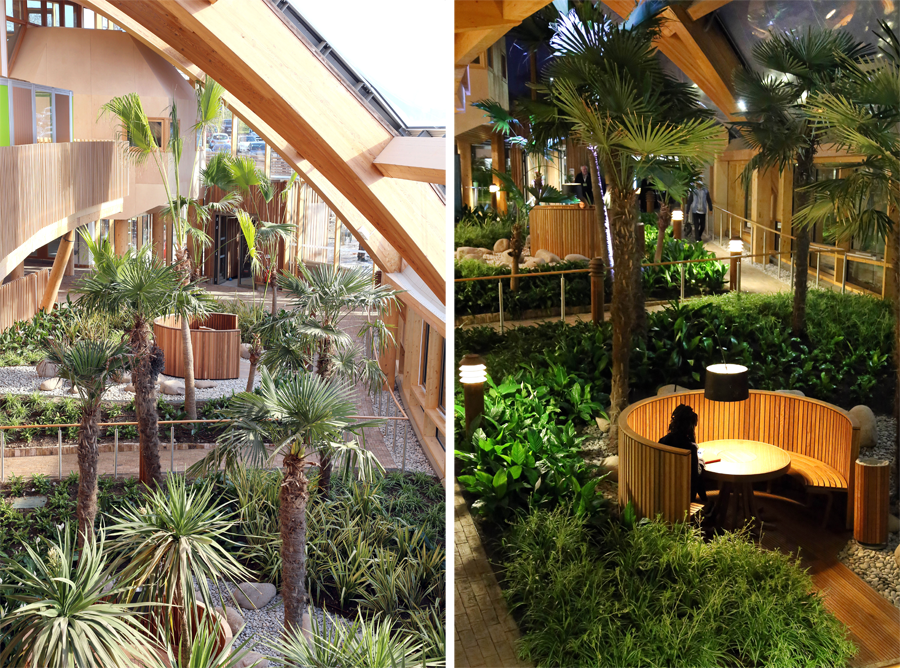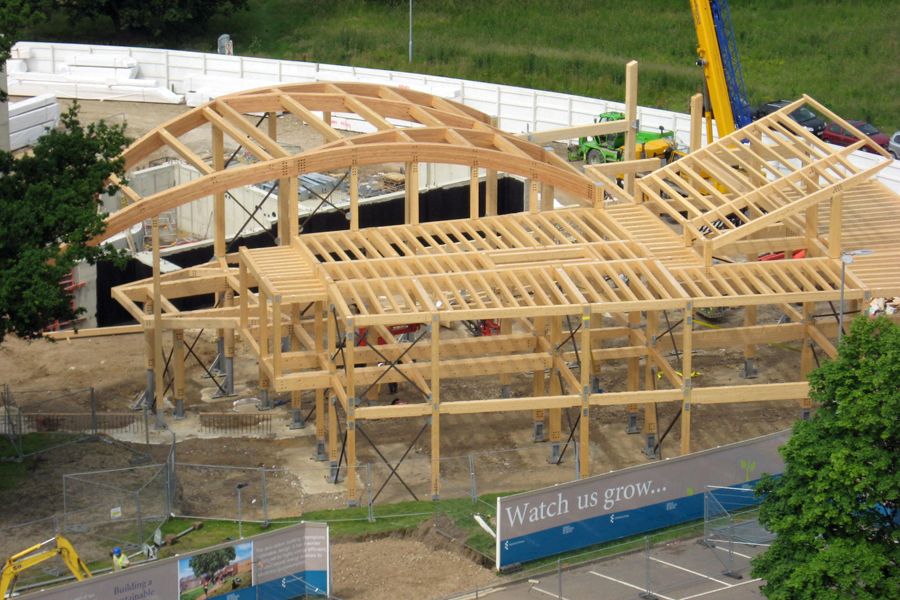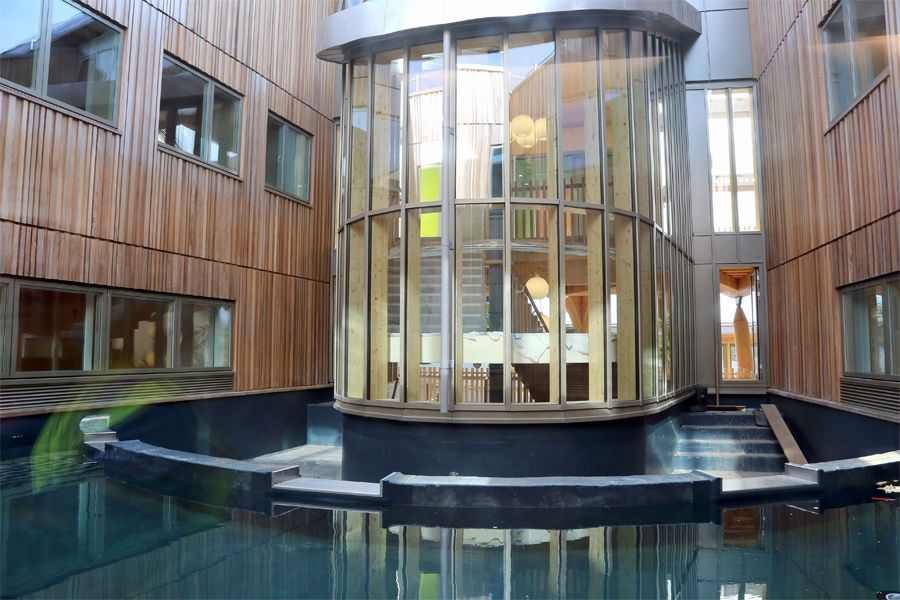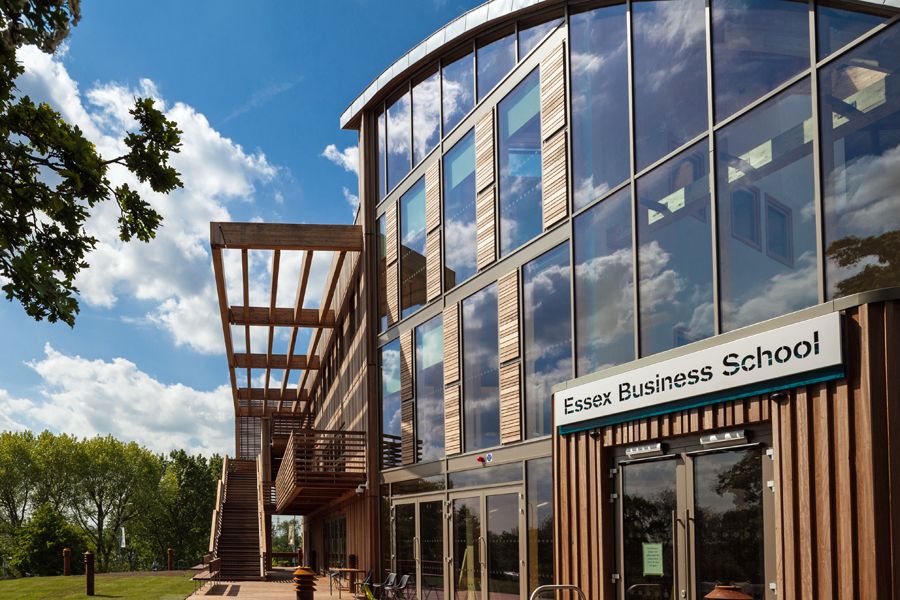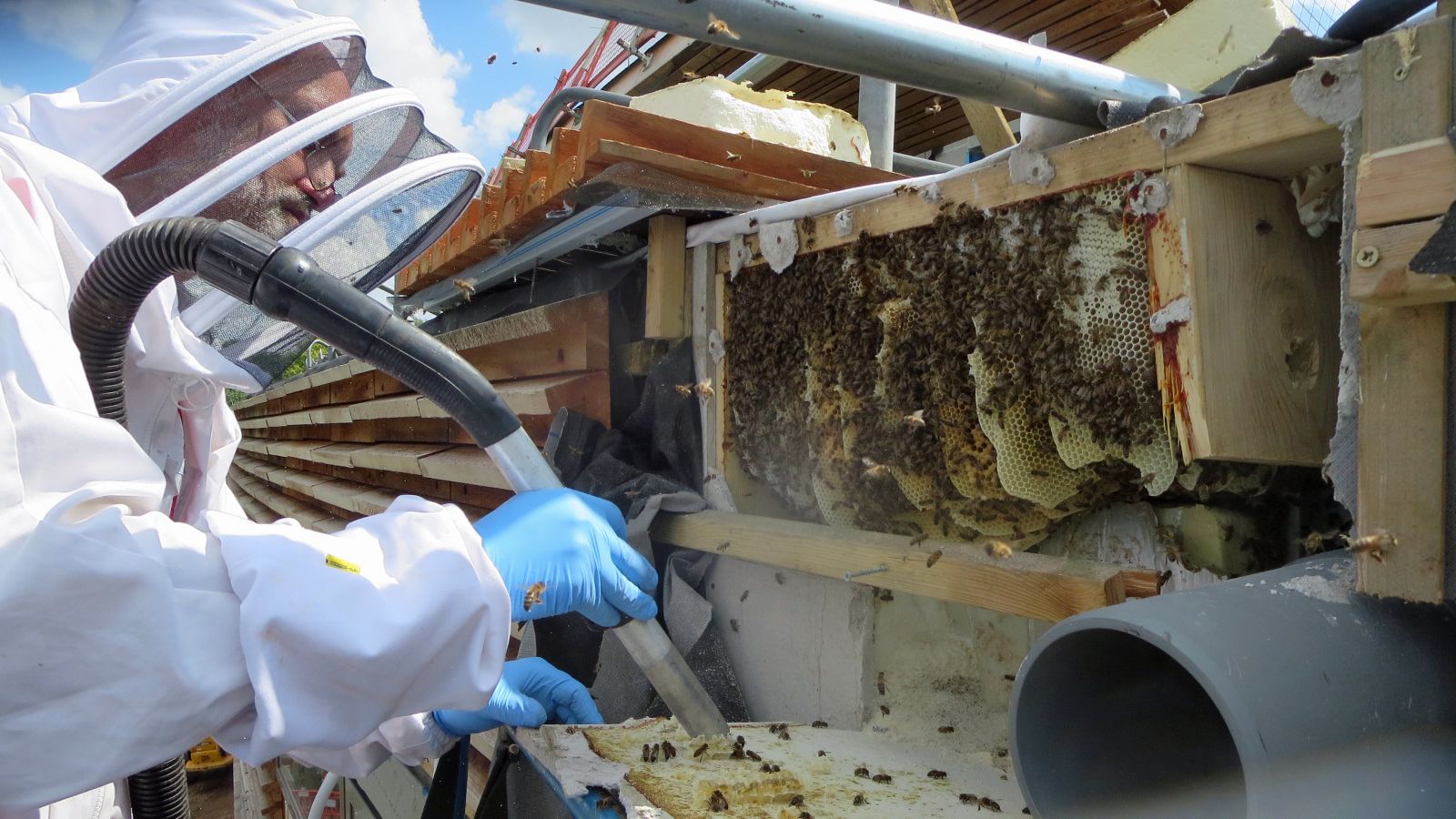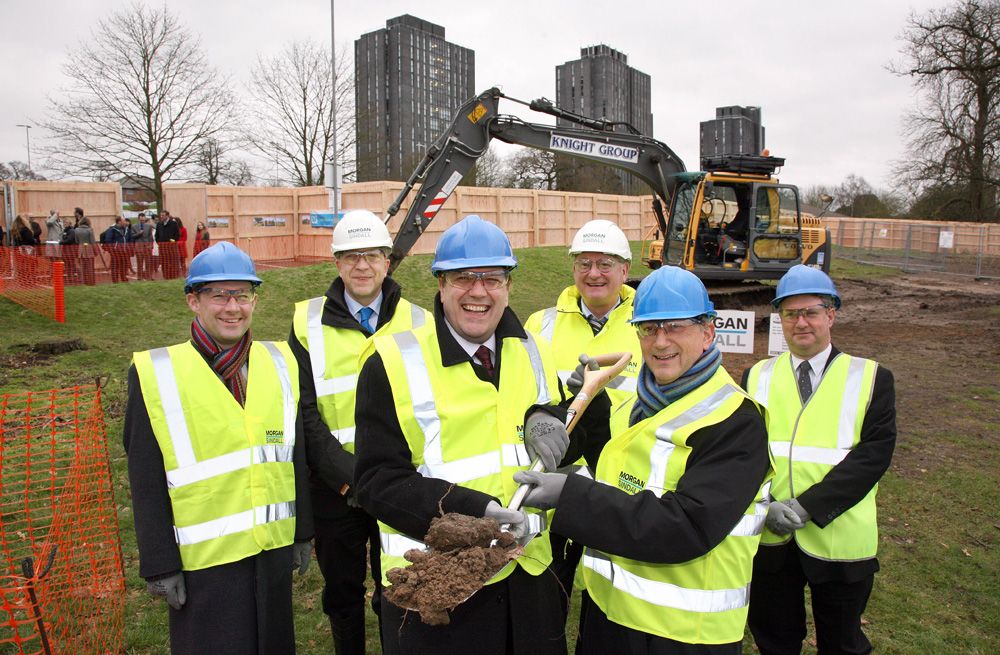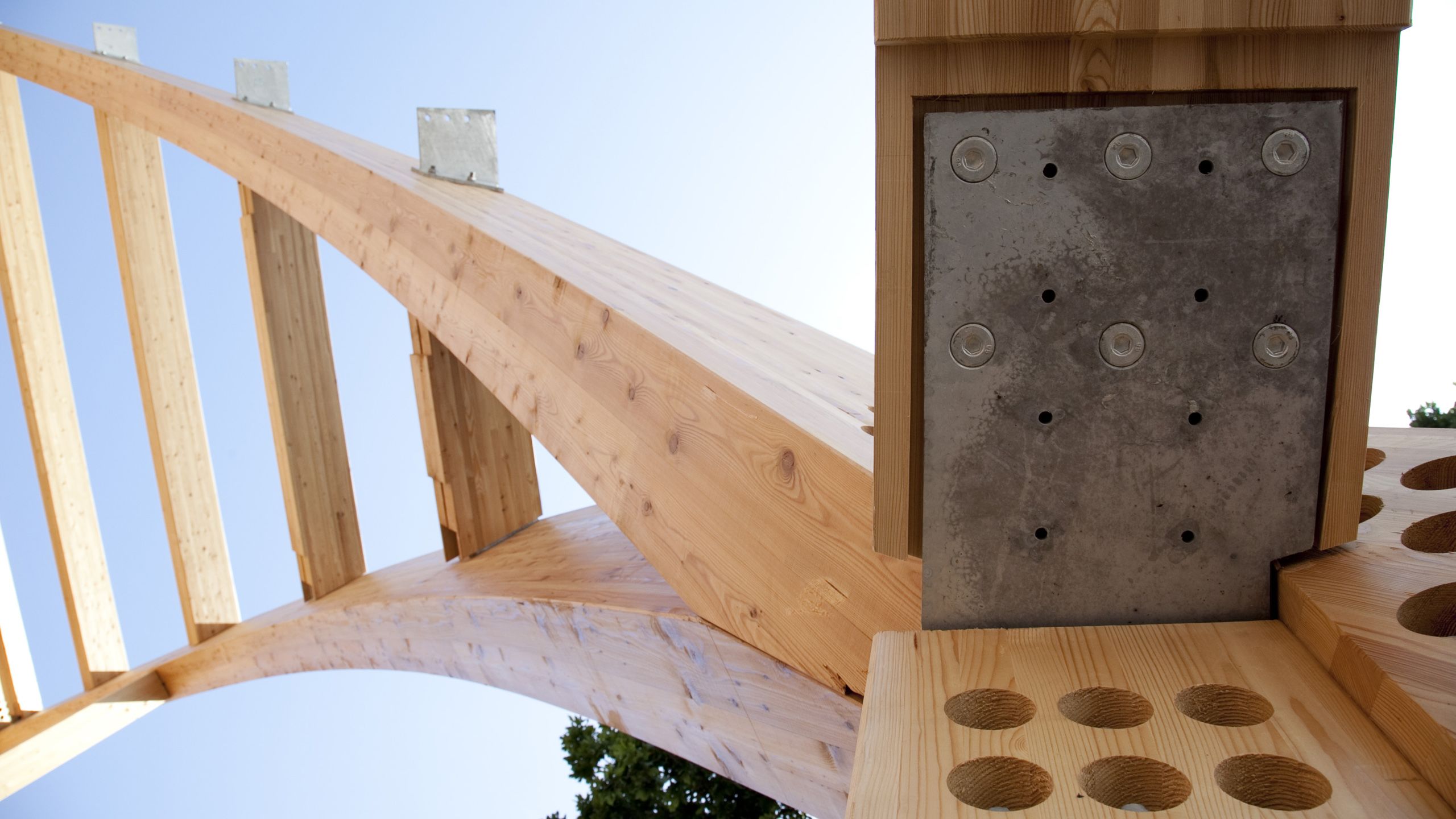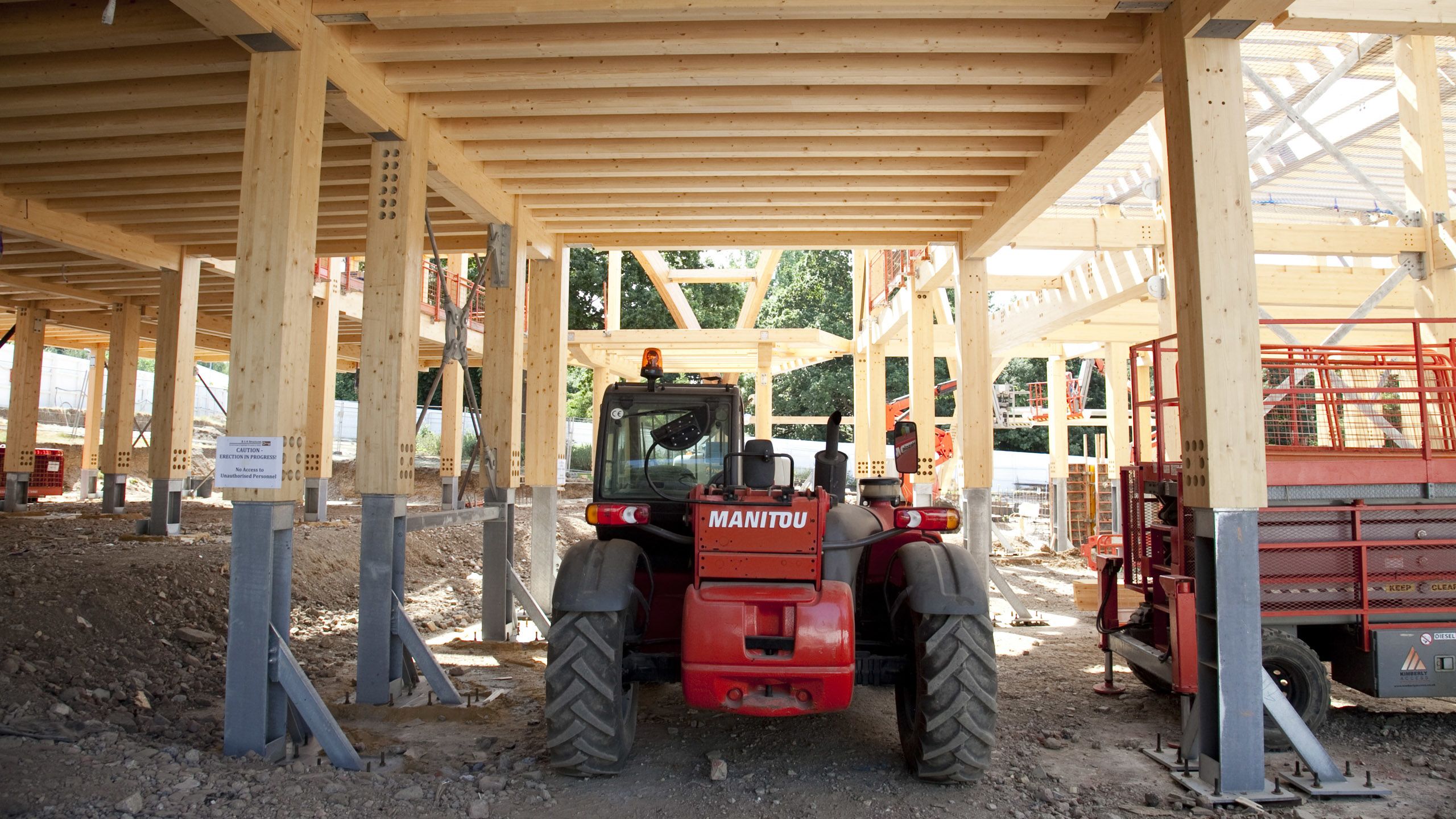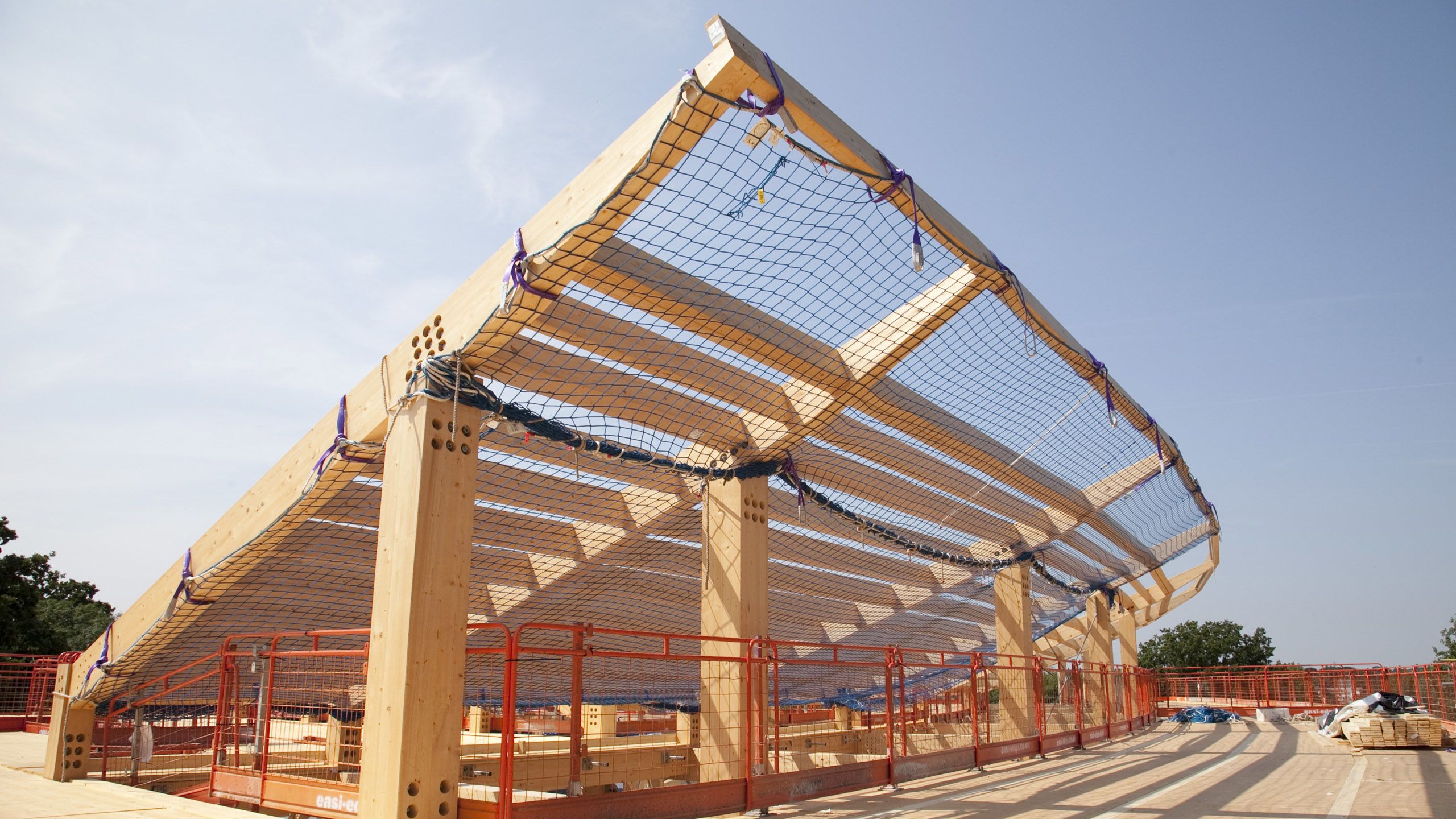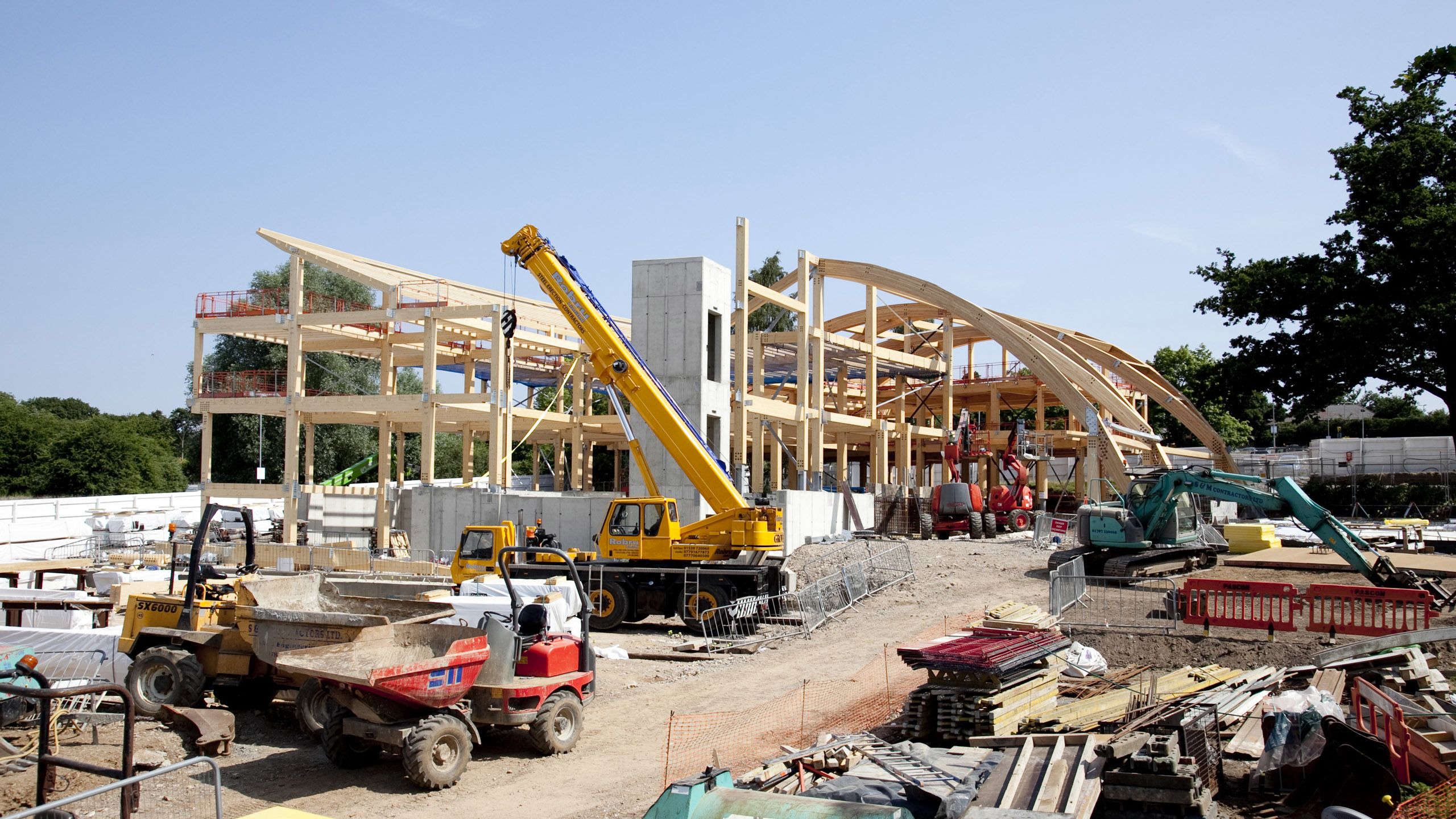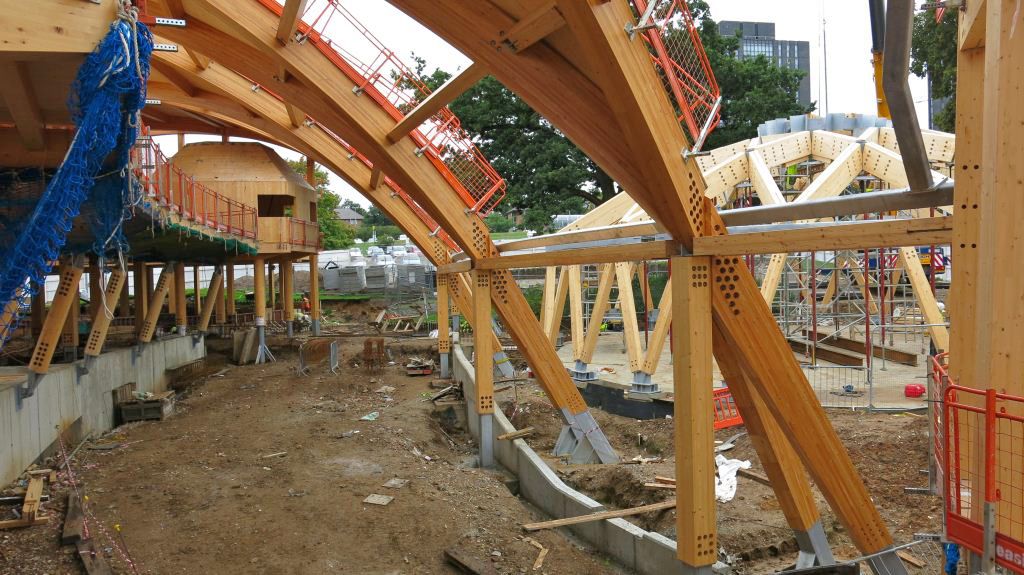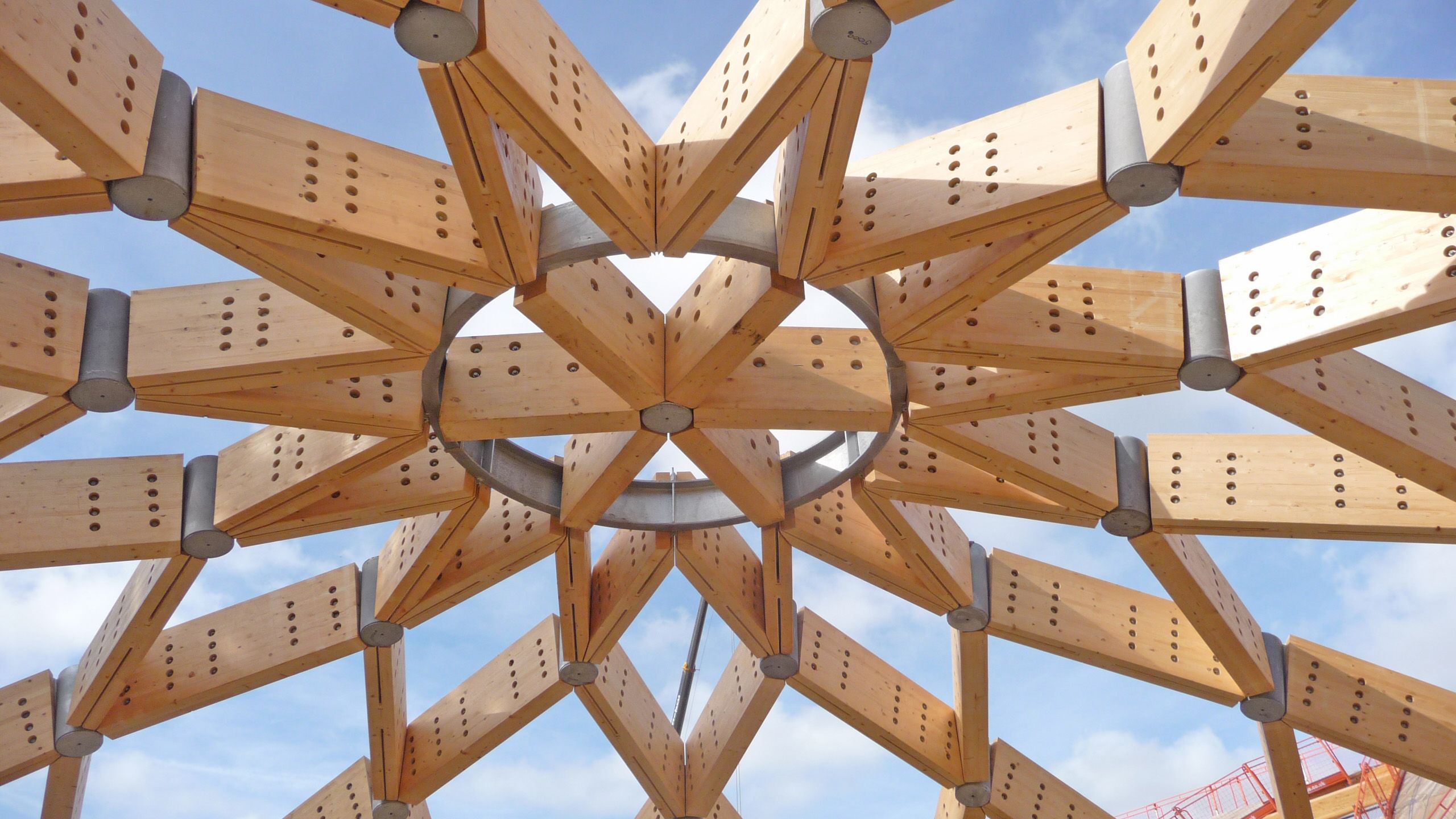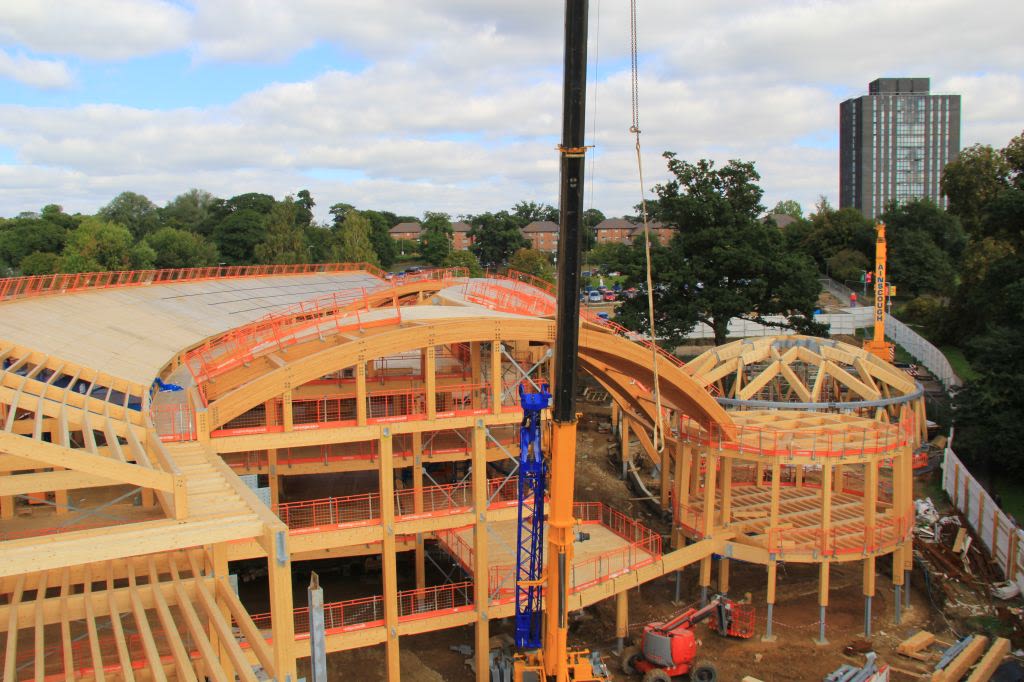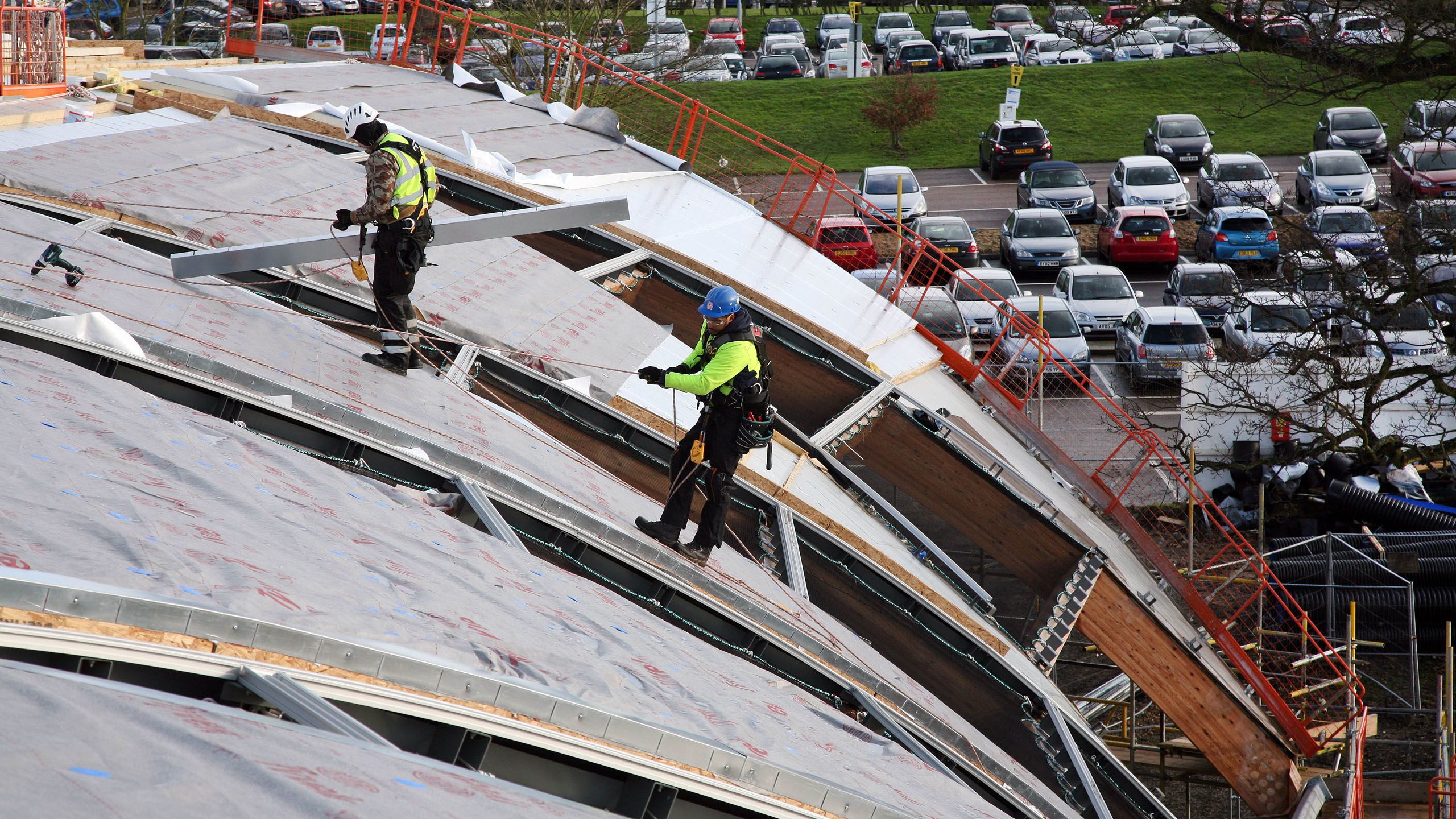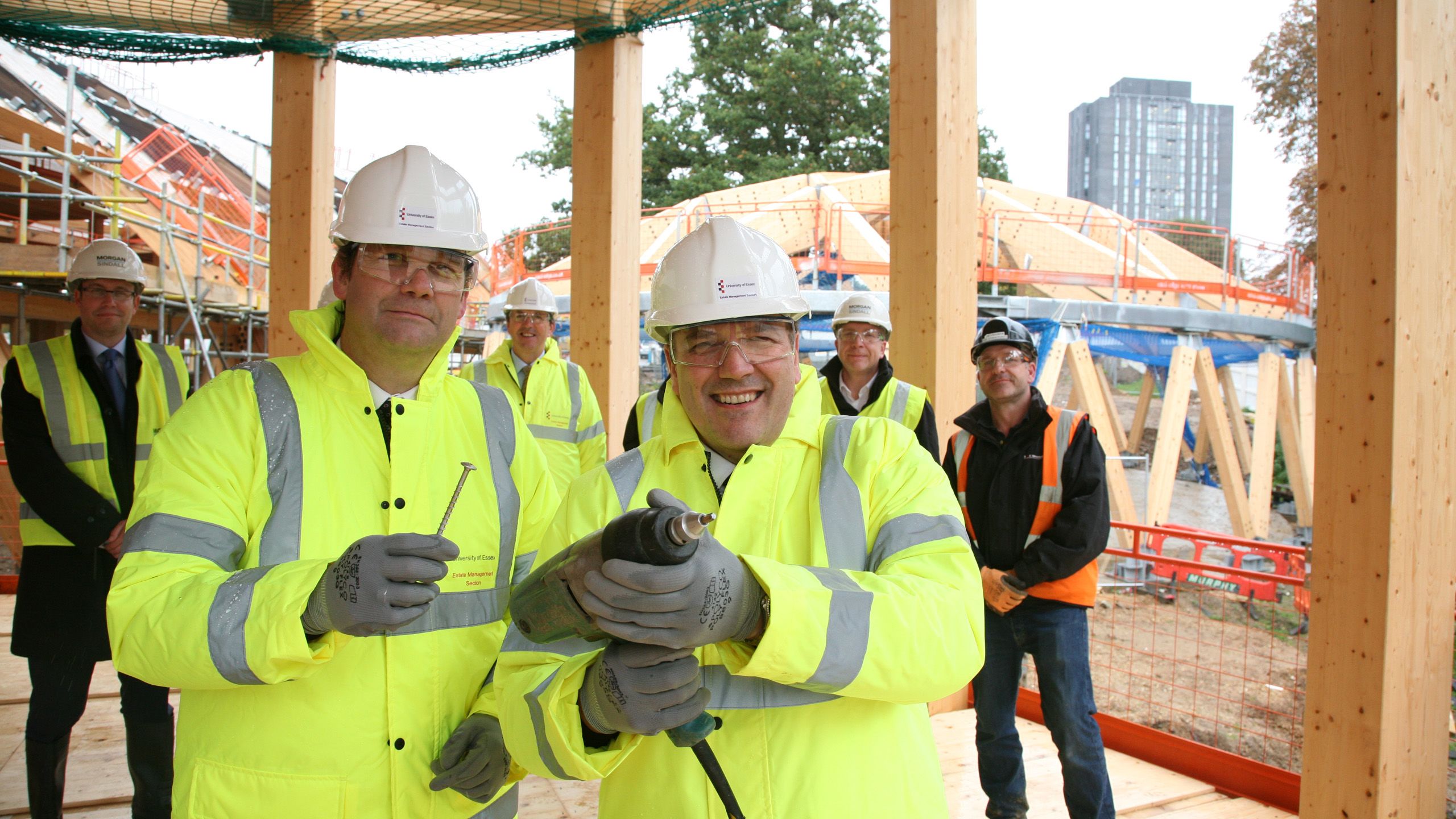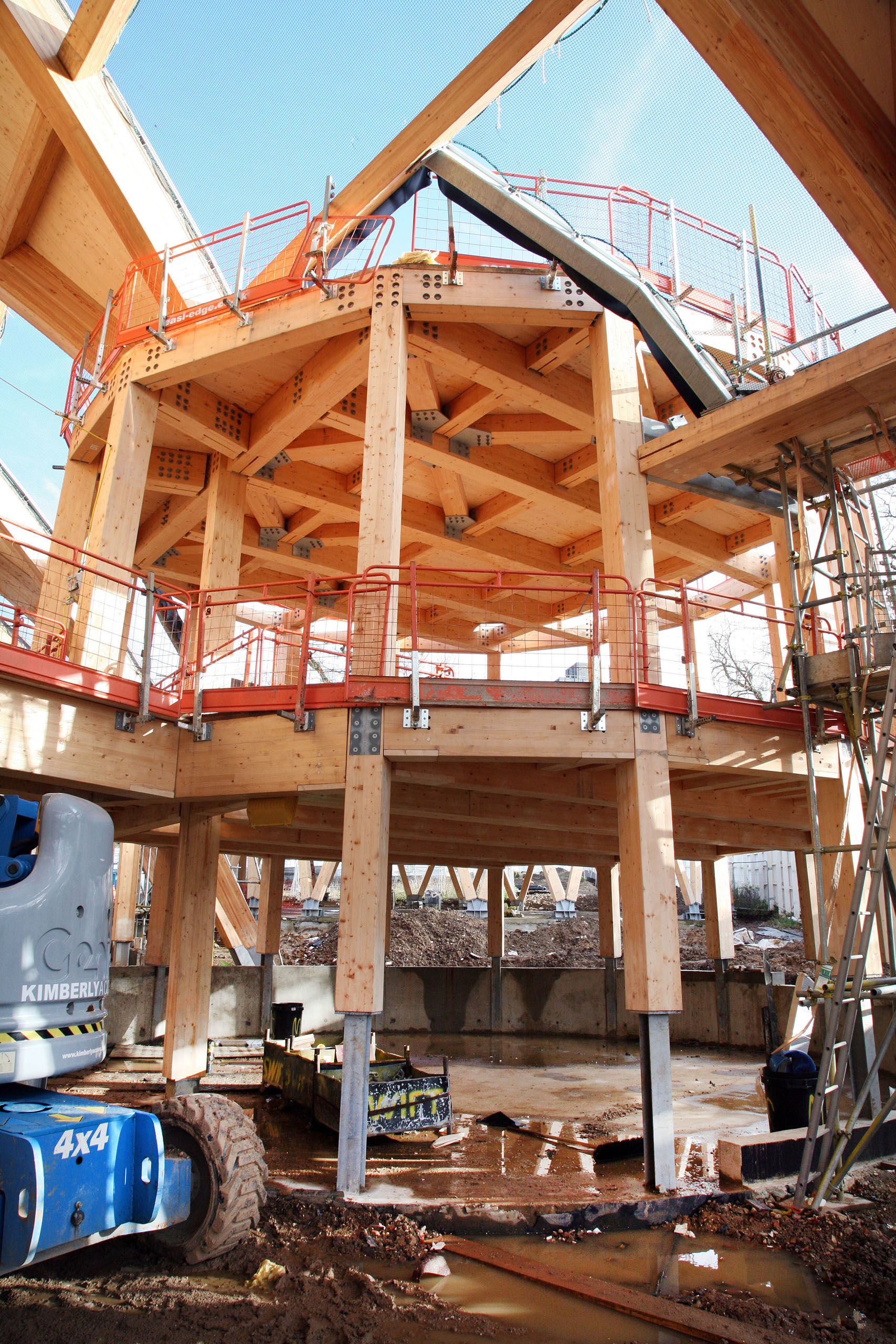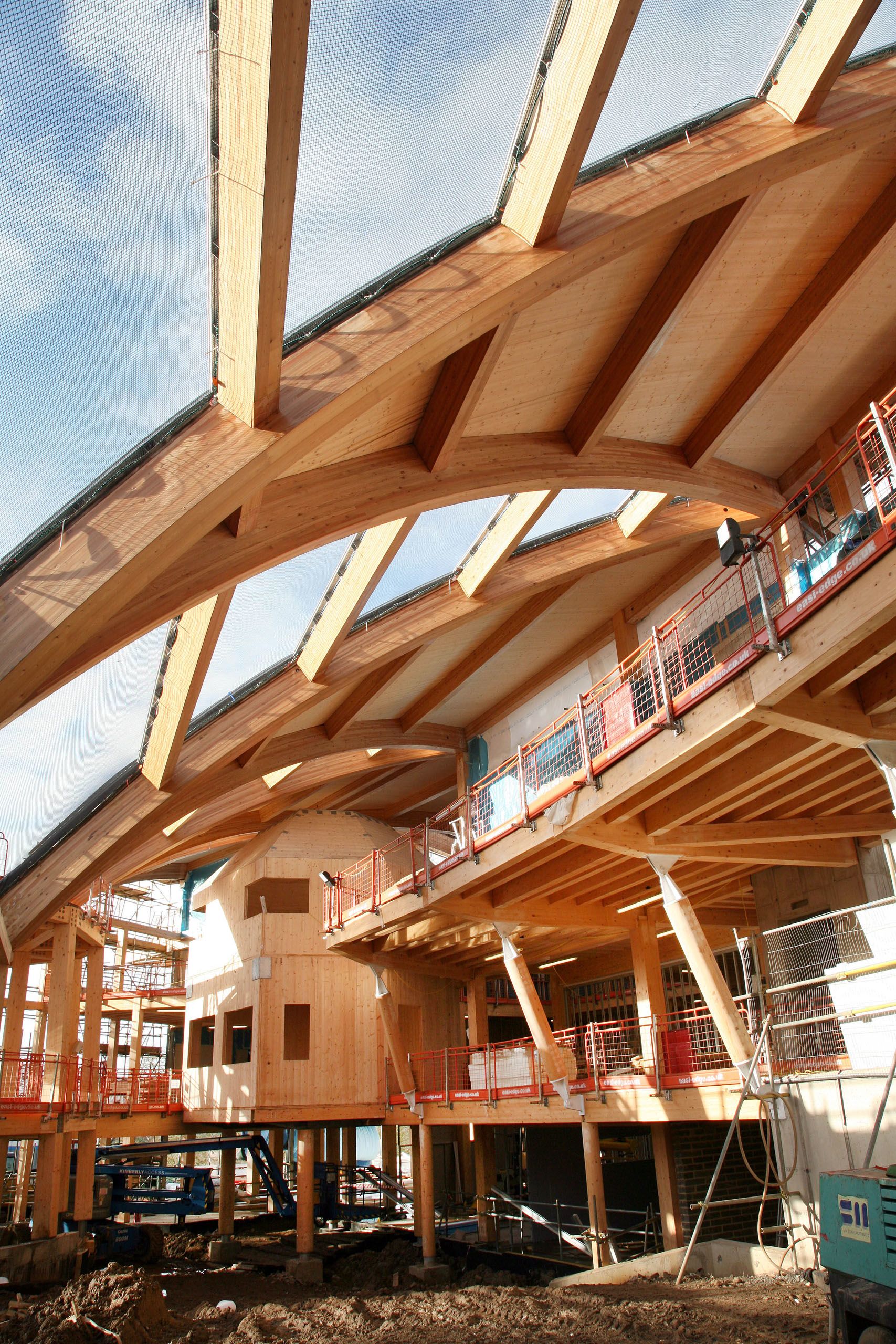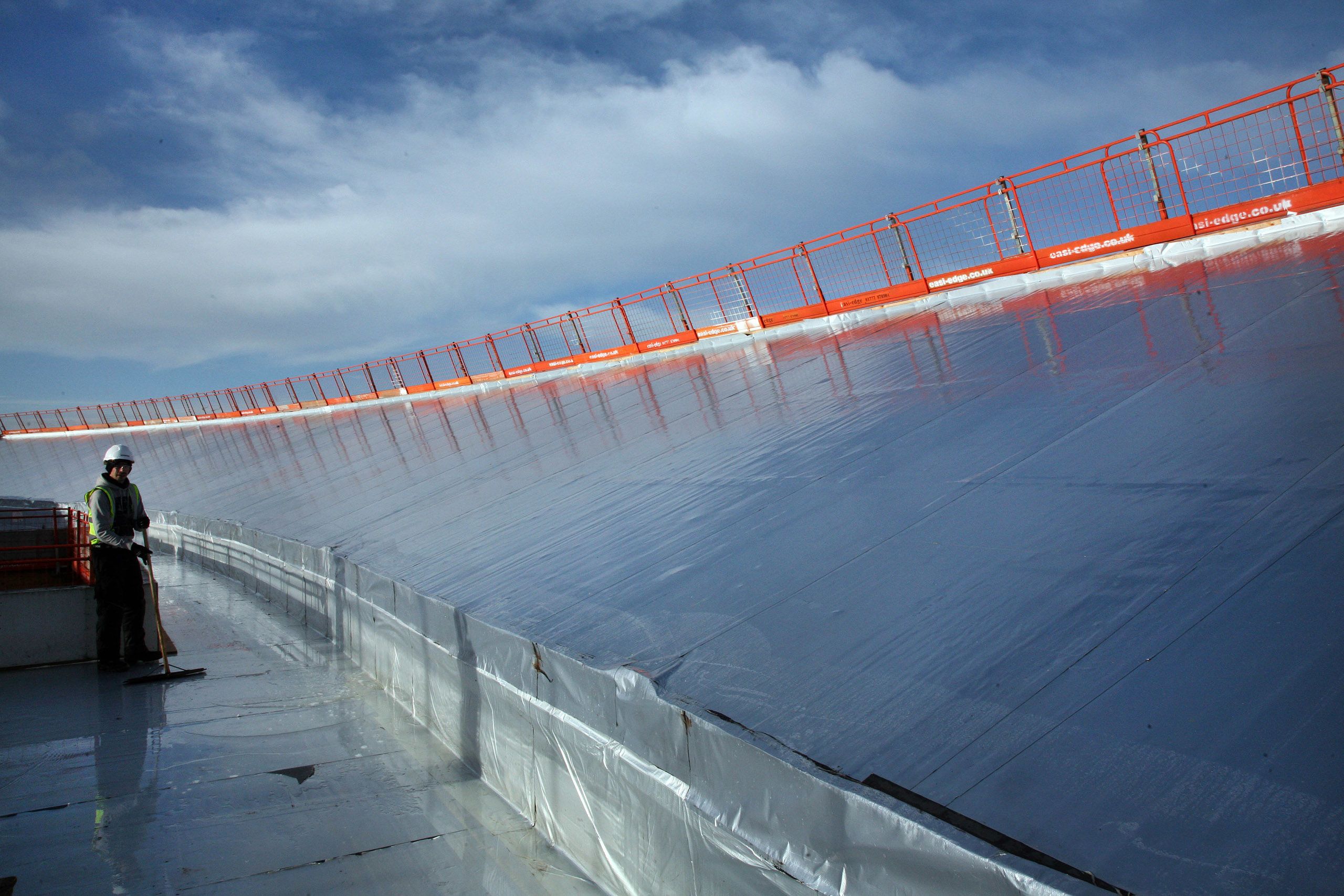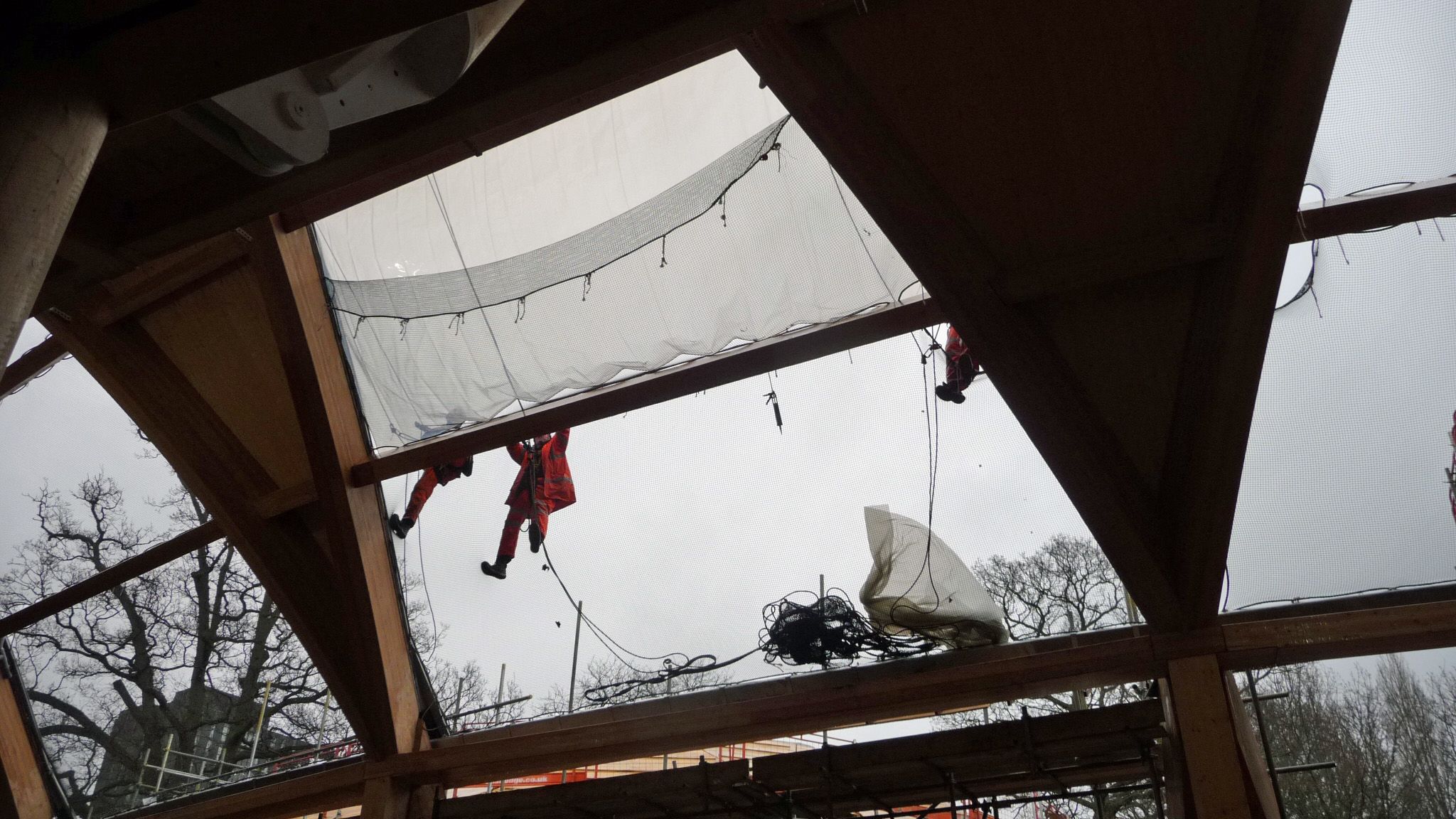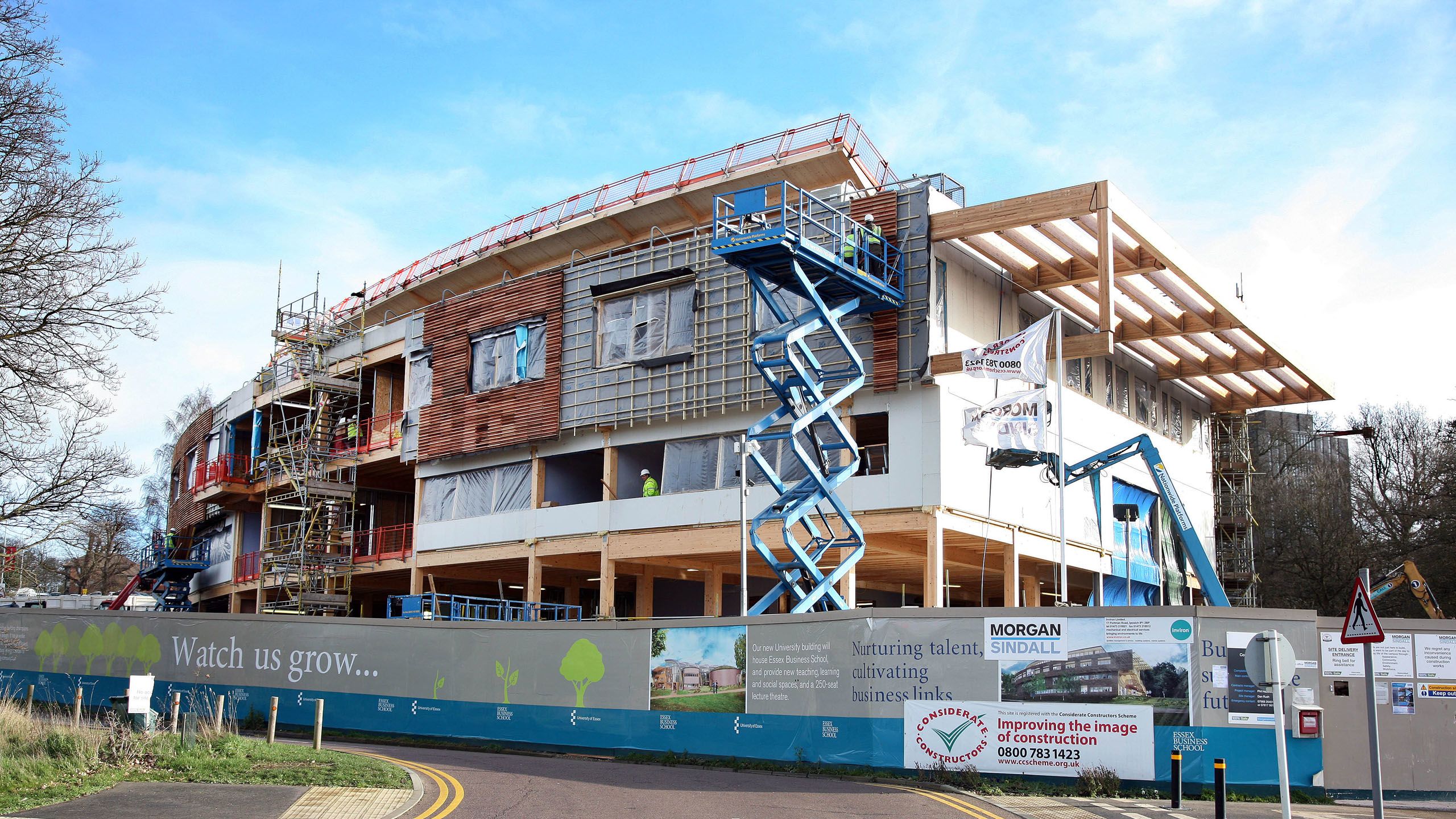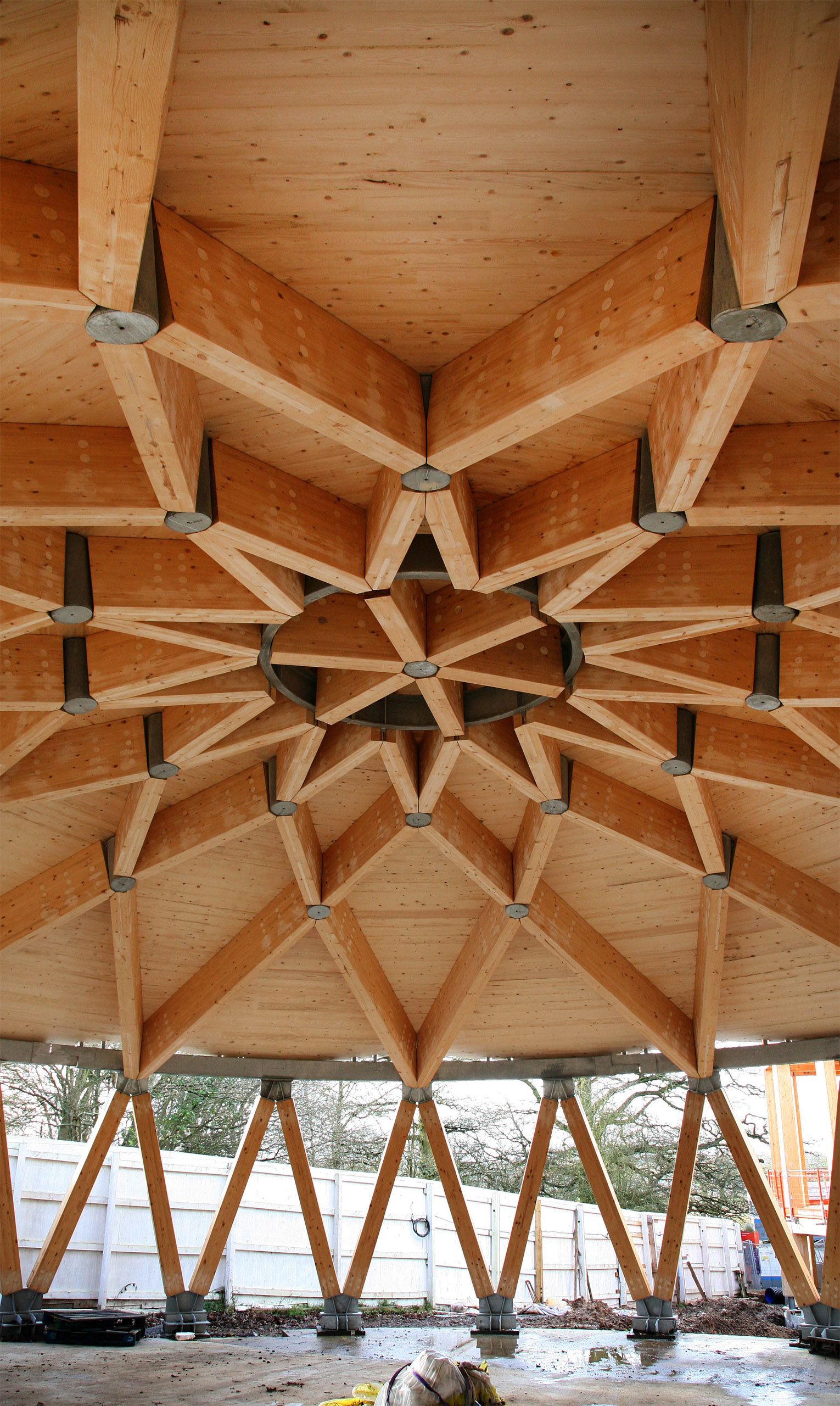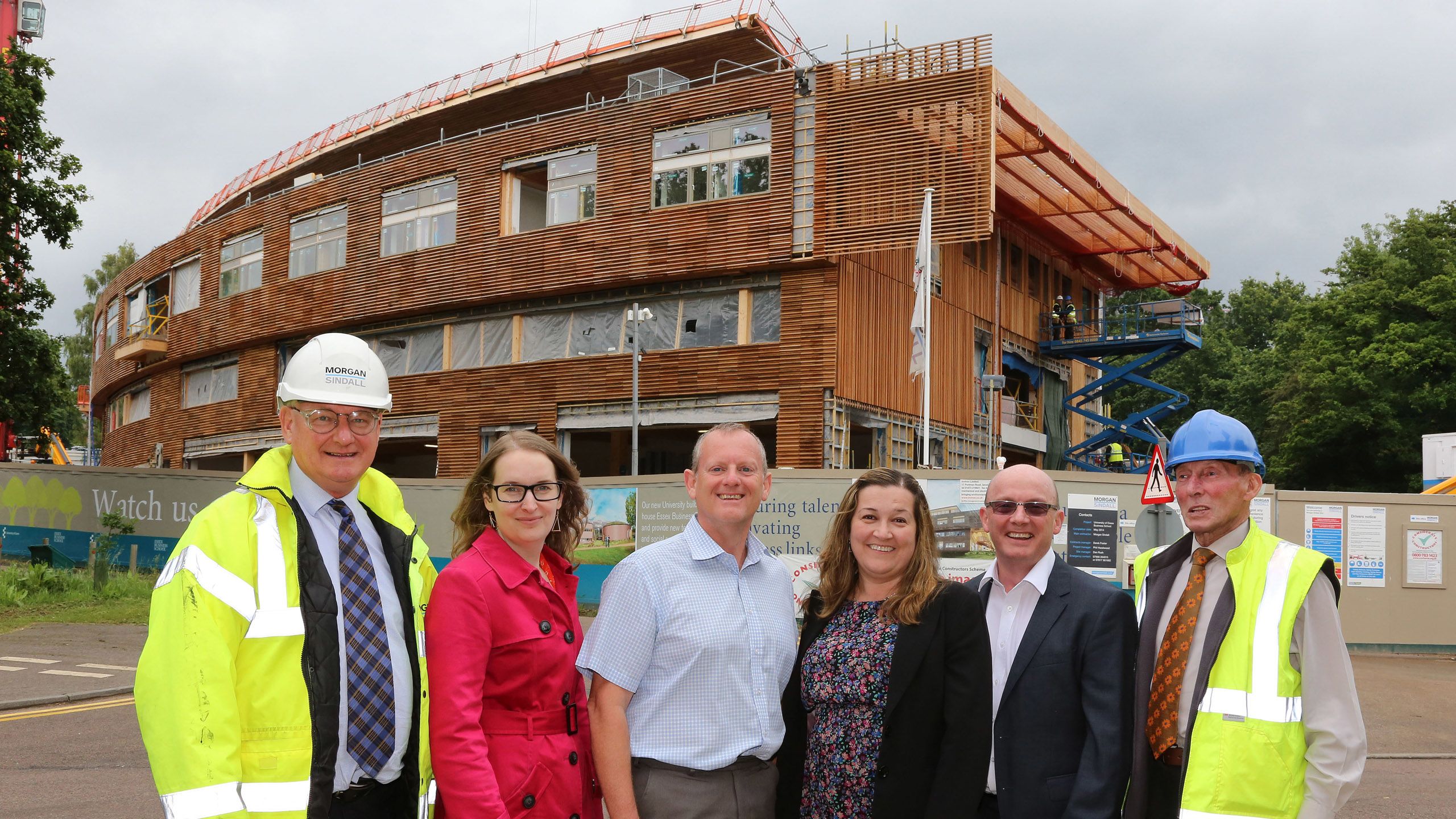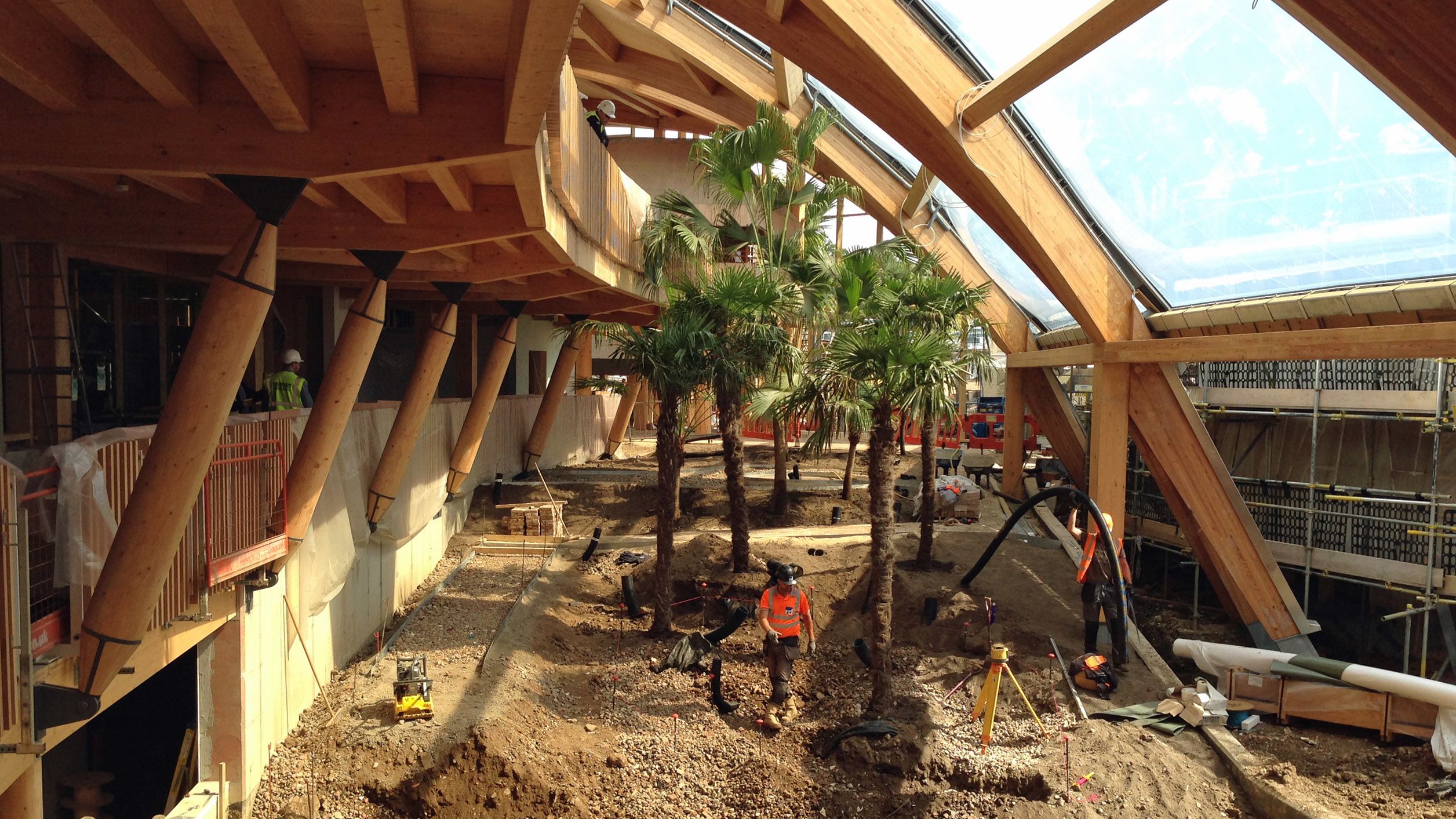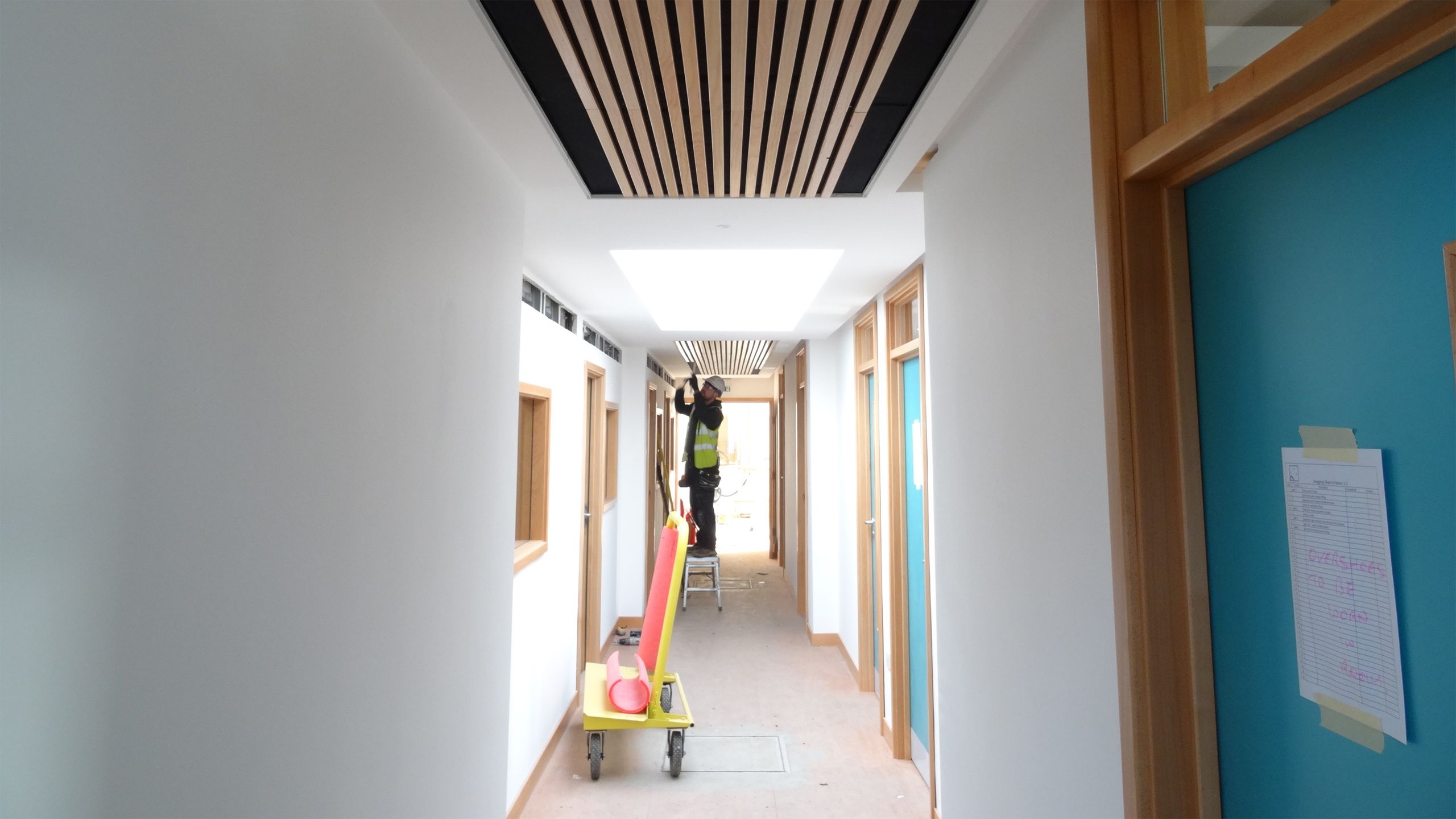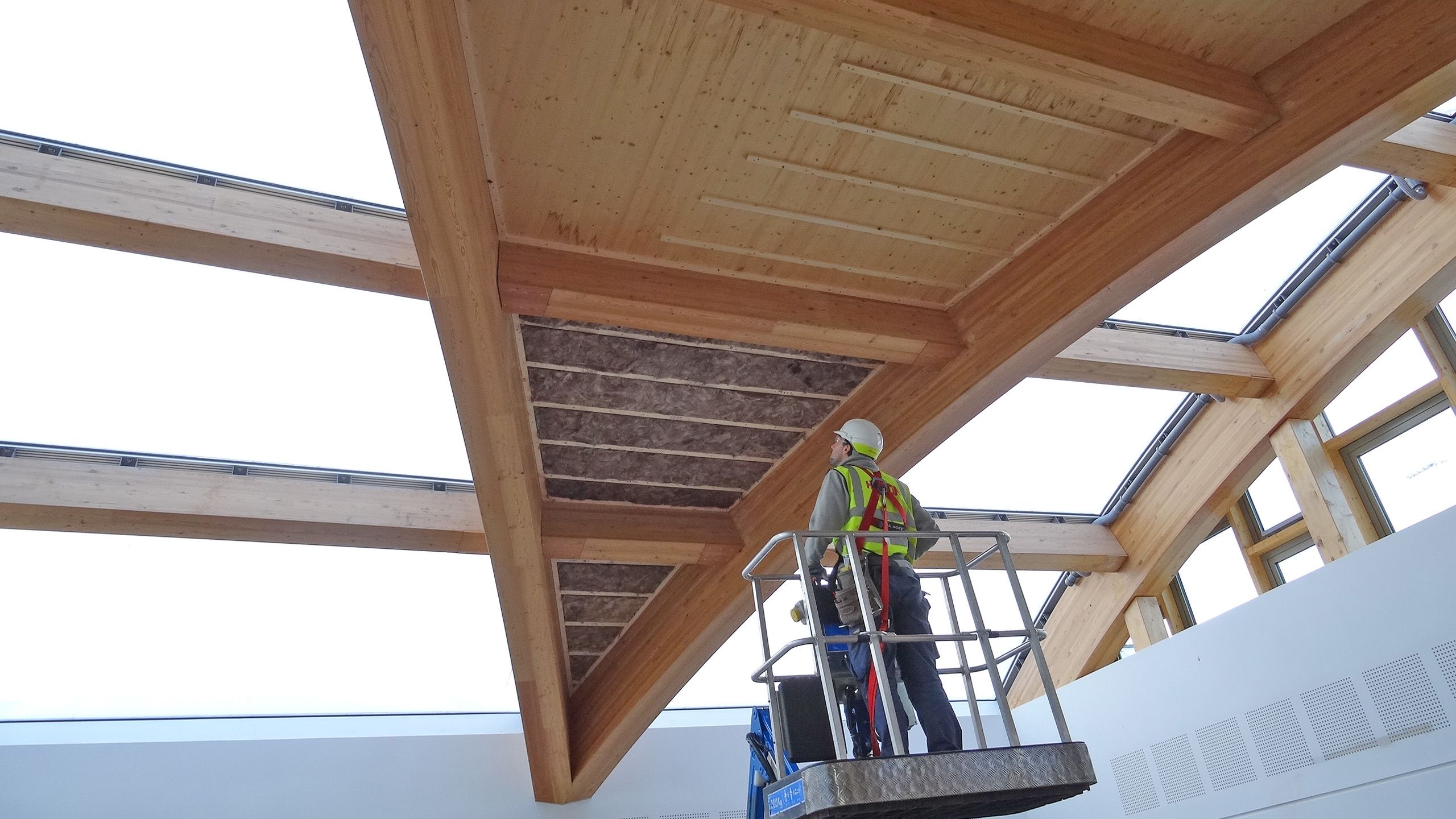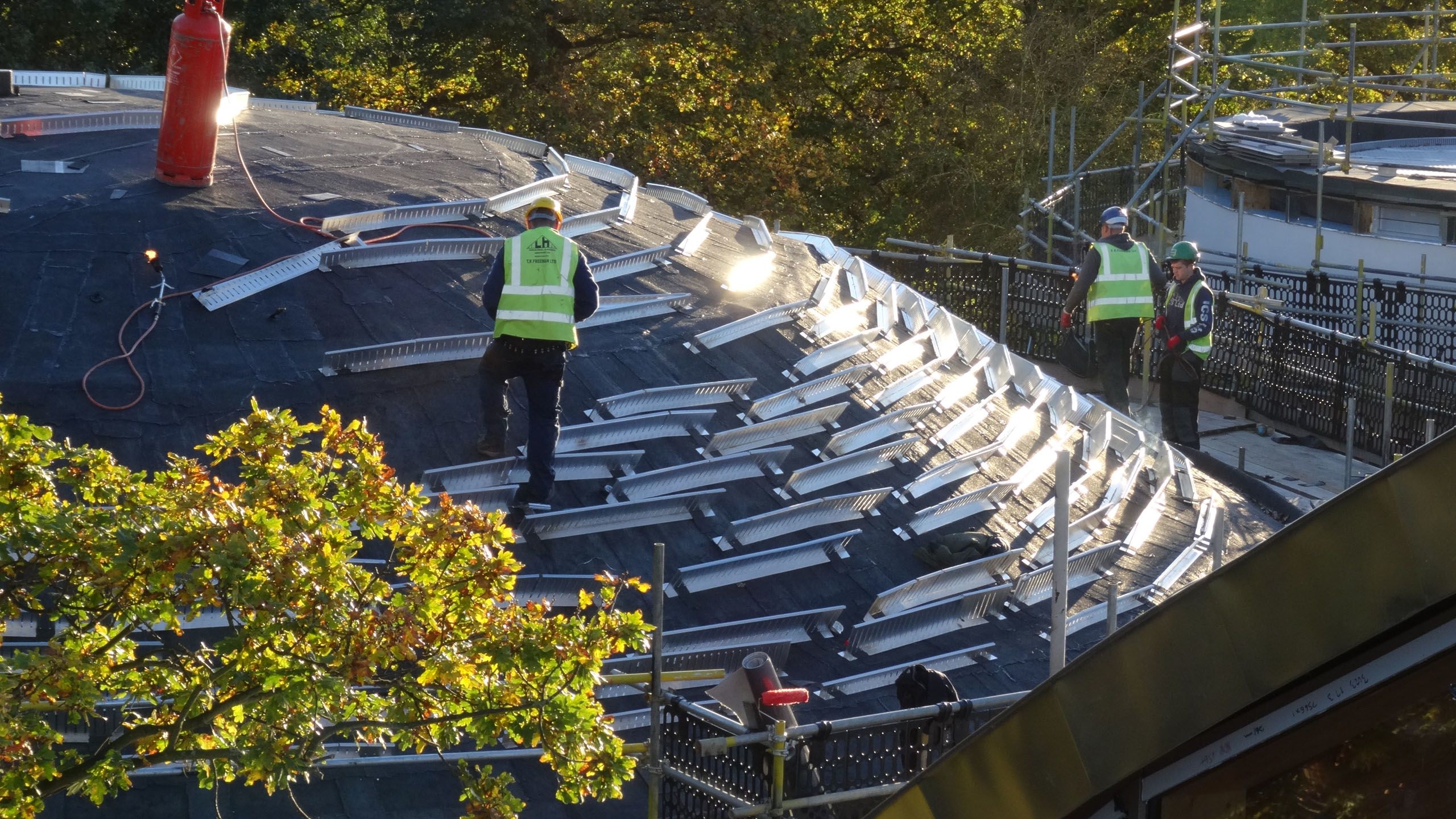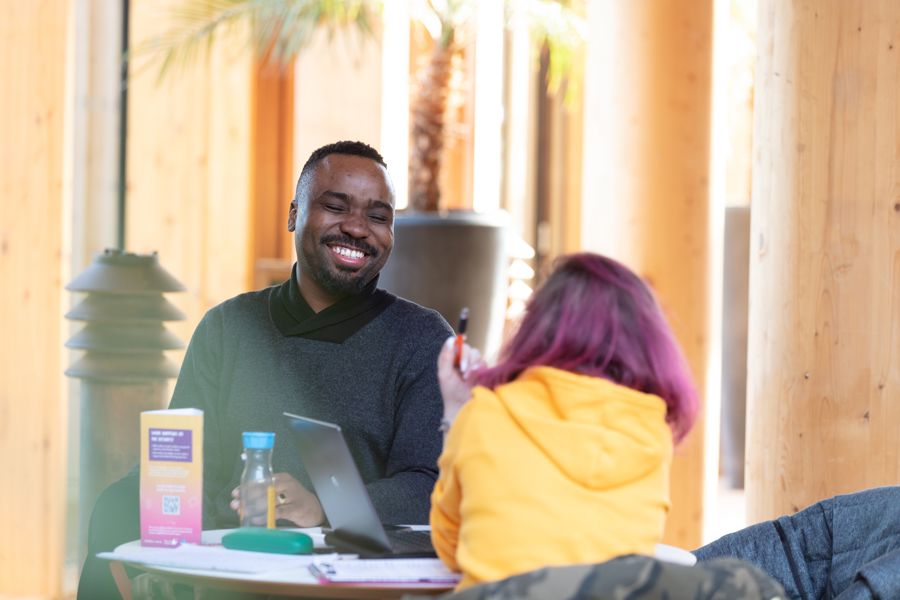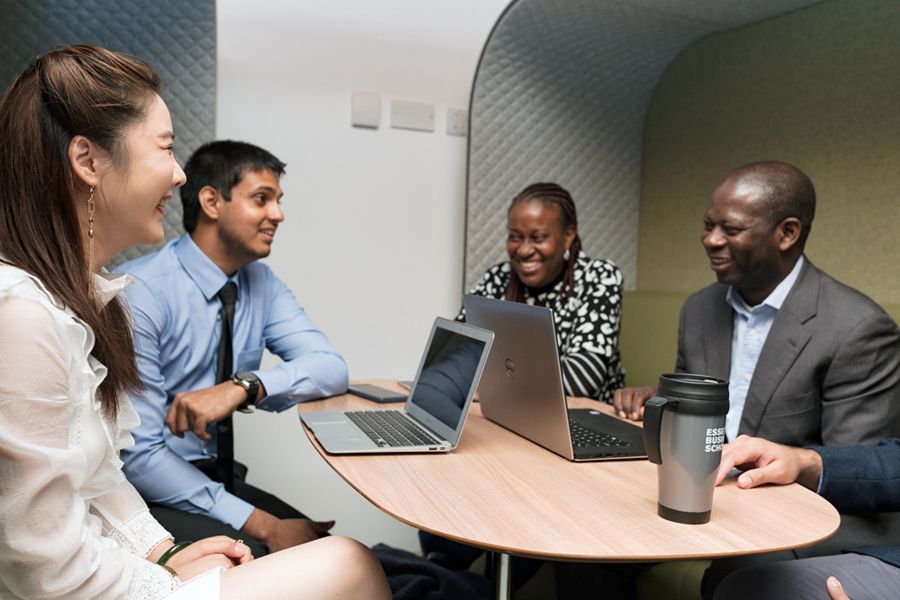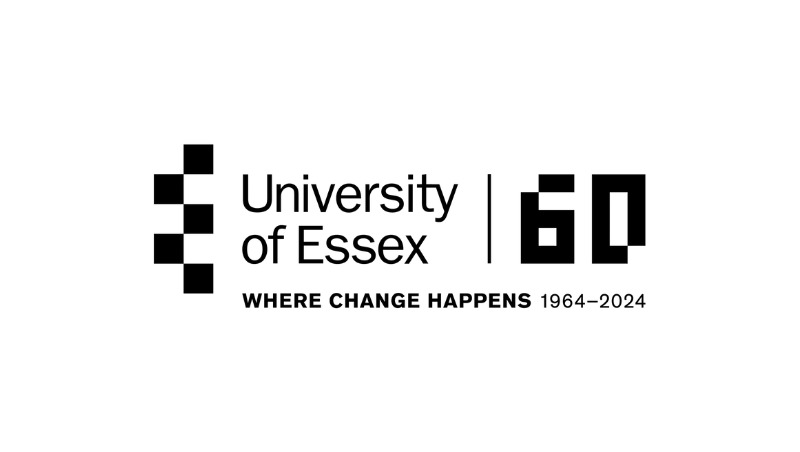How we created one of the world’s most sustainable business schools
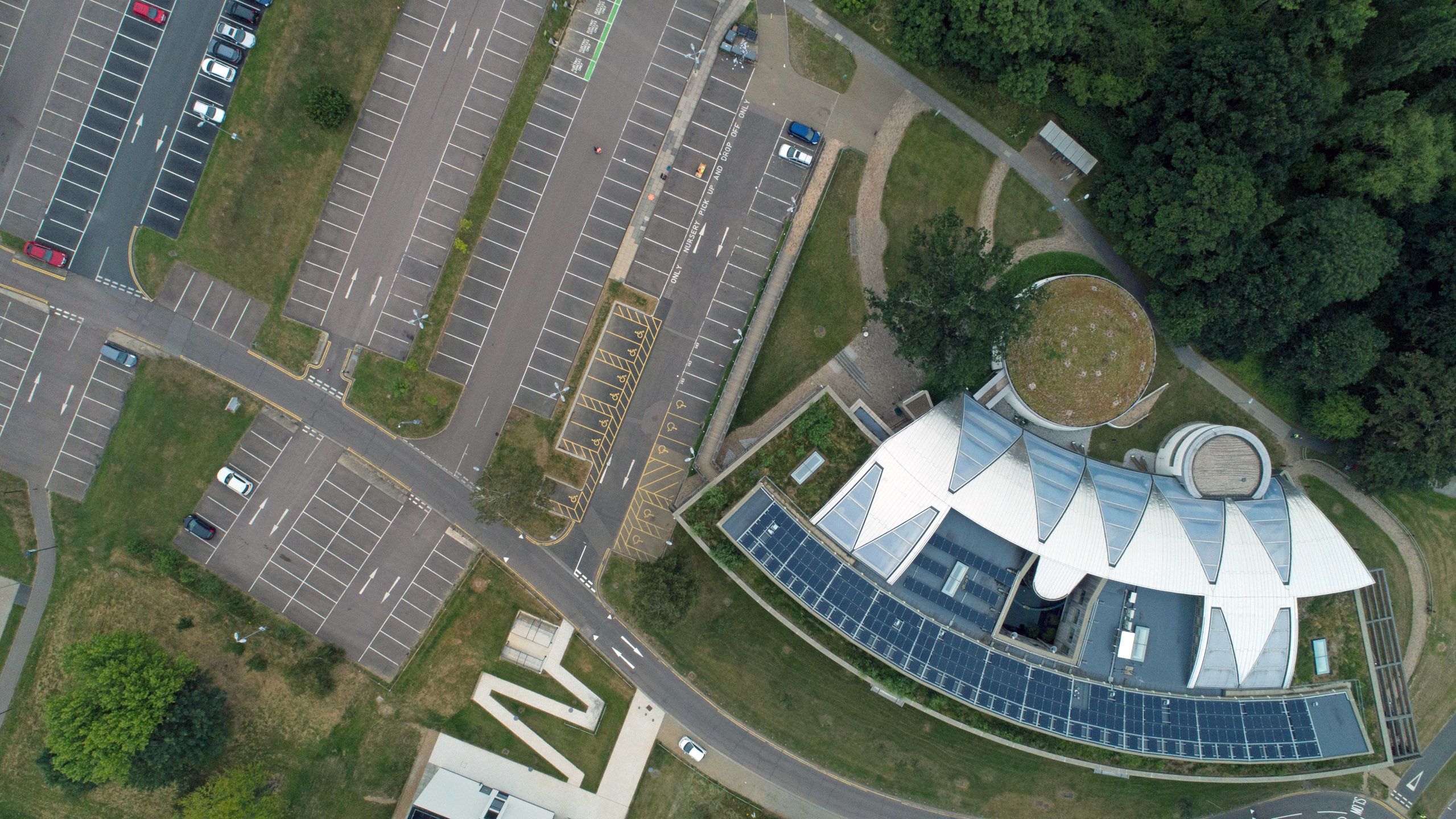
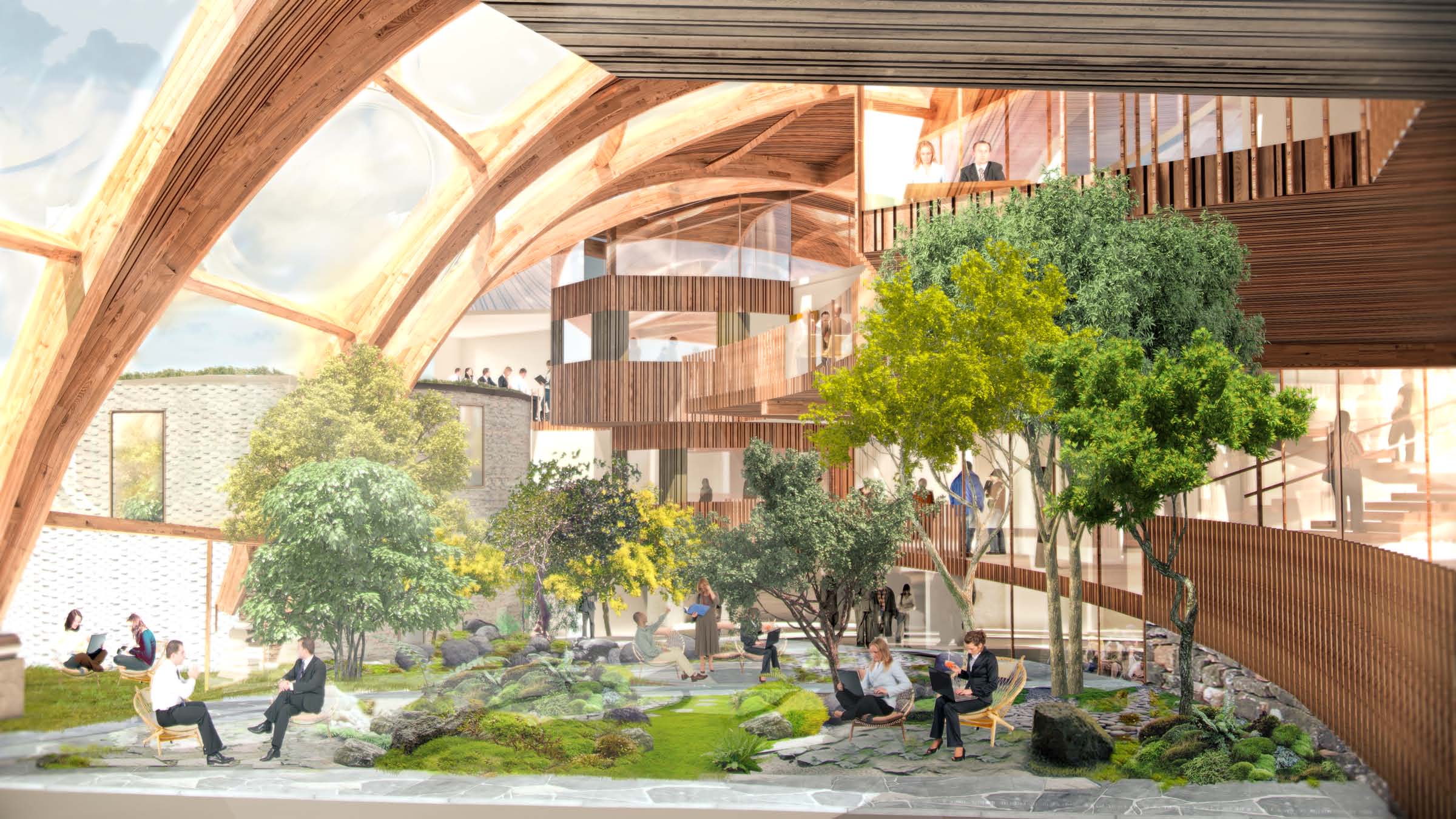
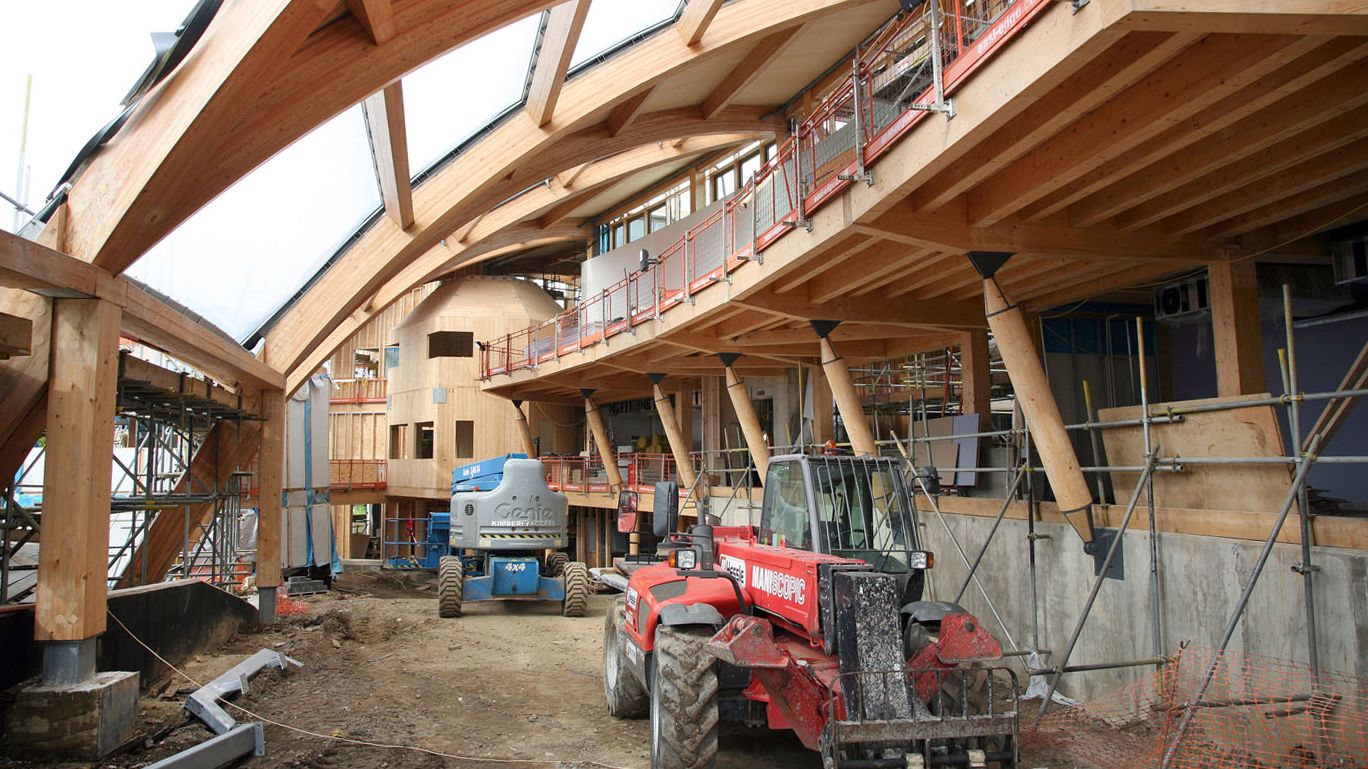
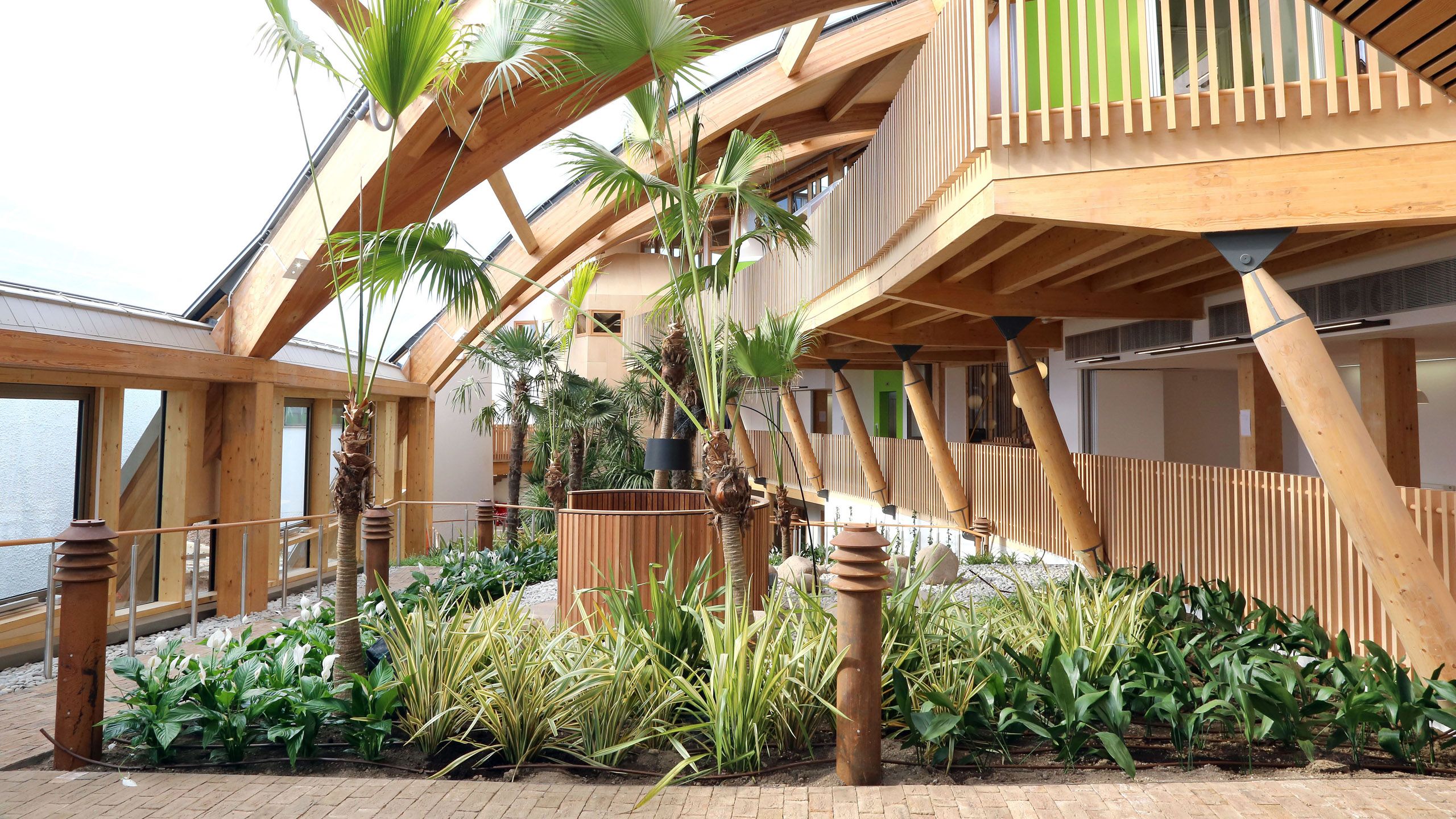
A liveable future demands long-term vision and real action from people, government, and business.
Essex Business School is founded on sustainability. We make business a force for good — and we started at home.
That’s why we built the UK’s first zero-carbon business school. We teach how to do business better, then we live it.
What makes EBS so green?
Green roofing
Architects BDP envisioned a building that was ‘visibly sustainable at every level’. Sedum plants on the rooves offer visitors an early glimpse of EBS’ ecological credentials.
Together with mature trees that were maintained through construction, they blend the building with the historic Wivenhoe Park.
The winter garden
The iconic feature of EBS, the winter garden is more than just a striking entrance.
By day, natural light pours through vast, arching windows to feed a rich array of air-purifying plants and maintain the building’s micro-climate.
By night, you’ll find cosy study spaces and meeting places nestled among the palm trees.
Wooden construction
You can’t grow concrete. But trees are regenerative, so EBS maximises use of certified-sustainable wood, inside and out.
That’s beneficial at every stage of the building’s life:
- During construction, timber reduces the building’s embodied carbon footprint, having absorbed over 1,000 tonnes of carbon dioxide from the atmosphere when grown. By contrast, concrete would produce CO2, and making cement releases 7% of the world’s carbon emissions.
- During use, wood reduces energy consumption by insulating the building 15 times more effectively than concrete and 400 times better than steel.
- At the end of its life, the timber frame can be dismantled more easily and potentially reused, while other materials require polluting demolition and are often sent to landfill.
Solar power
EBS’ south-facing crescent takes full advantage of the sun. Across the roof, 244 solar panels generate around 90,000 kWh of electricity. That’s enough to run 50 flats from this building alone.
In fact, when paired with measures like LED lighting, efficient IT equipment, and smart meters, EBS is a net exporter of electricity.
The rainwater pool
Like many of EBS’ features, the rainwater pool is as functional as it is beautiful.
Here, rain is collected from the roof, then recycled for irrigation in the winter garden.
Passive heating and ventilation
As far as possible, heating and air flow in EBS are natural. The south-facing windows of the winter garden gather warmth, while a built-in system monitors the air temperature and opens windows for cooling.
This approach saves a tonne of carbon emissions every day — that's one economy seat on a flight from London to New York.
Other passive systems are at work: large amounts of insulation keep heat in during winter and keep it out in summer; and a large brise-soleil shades south-facing classroom and office windows.
When direct warming and cooling is needed, a clean, electric ground-source heat pump exchanges underground heat energy with the building and vice versa.
Plus, all the electricity generated by the solar panels creates extra heat which we efficiently repurpose. Combined heat and power schemes like this cut energy use by around 20%.
A recyclable roof
The Eden Project-style roof over the winter garden reduces the demands for electric lighting and heating.
What’s more, it’s made from fluorine-based EFTE plastic, which is low-energy to manufacture, highly resilient and self-cleaning during use, and recyclable at the end of its life cycle.
Building our future
Before this work, Essex Business School was spread across six locations on our Colchester Campus. With a 50% increase in student applications at the time, it was clear that the School needed a building where it could grow under one roof. And that building had to reflect EBS’ mission to develop social, ethical, sustainable business strategies, as well as the University’s belief in sustainable development.
Breaking ground for the new eco home took place in January 2013, with the topping-out ceremony held in October that year.
You can see how quickly the frame went up in this timelapse, and progress photos in the gallery below.
A timelapse video shot from a high vantage point showing the construction of Essex Business School's wooden frame.
Construction wasn’t always easy. Wood’s flexibility made aligning the frame tricky at times. Rain fell through the many open window frames. A colony of bees (pictured) even needed to be rehomed after making their hive in the wooden walls. Nature’s seal of approval? Check.
After two years and £21 million of investment, EBS was finished. The new landmark drew attention from across the UK:
- its sustainability was recognised as ‘Excellent’ in the Building Research Establishment’s worldwide BREEAM certification
- it was shortlisted for the Guardian University Awards ‘Buildings that inspire’ category
- it won in the ‘Design through innovation’ category of the Royal Institute of Chartered Surveyors’ East of England Awards
And, for our students and staff, Essex Business School stands as an inspiring testament to what’s possible when organisations turn a bold vision into meaningful action for the future.
Bryn Morris, the University's Registrar and Secretary, takes part in Essex Business School's breaking ground ceremony.
Bryn Morris, the University's Registrar and Secretary, takes part in Essex Business School's breaking ground ceremony.
Registrar and Secretary Bryn Morris at Essex Business School's topping out ceremony.
Registrar and Secretary Bryn Morris at Essex Business School's topping out ceremony.
Degrees which won’t heat the planet
Sustainability doesn’t stop with the EBS building; you’ll find it embedded throughout our business courses. Across our taught undergraduate, postgraduate, and Essex MBA programmes, you can delve into modules on themes as broad as:
- green investing
- social justice in Latin America
- value creation in a de-growth economy
- climate accounting
- corporate social responsibility
- growing sustainable businesses
- people and sustainable organisations
And our students do more than just learn. Essex Business School is right beside our Innovation Centre and Knowledge Gateway. Here, you can benefit from links with all the organisations making our Colchester Campus their home, as well as launch your own enterprise with support from our Essex Startups team in Studio X.
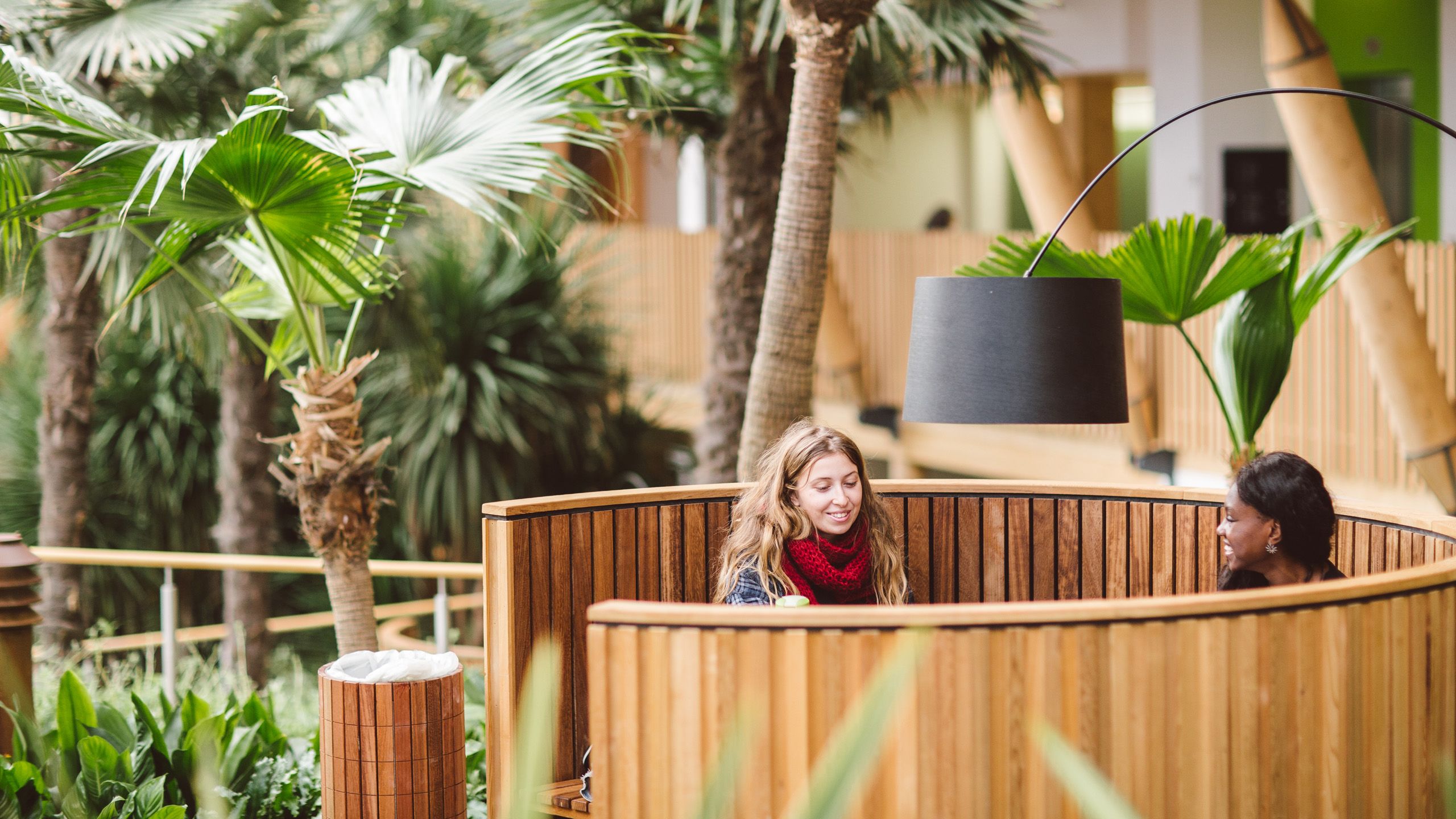
Research with a global impact
Across such diverse areas as emerging markets, corporate governance, and gender studies, EBS emphasises sustainability practices, business responsibility, and key technologies. Examples of research include:
- using oysters for natural coastal defence, with the team invited to present at the UN COP27 climate conference
- paying citizens to find solutions to social issues
- tackling food waste
- promoting the circular economy
- pushing for sustainability in the fashion industry
- boosting food security with indigenous peoples
And, having secured a £2.2 million grant from the Leverhulme Trust to help train up the next generation of interdisciplinary environmental researchers, EBS’ sustainable research impact will continue long into the coming decades.
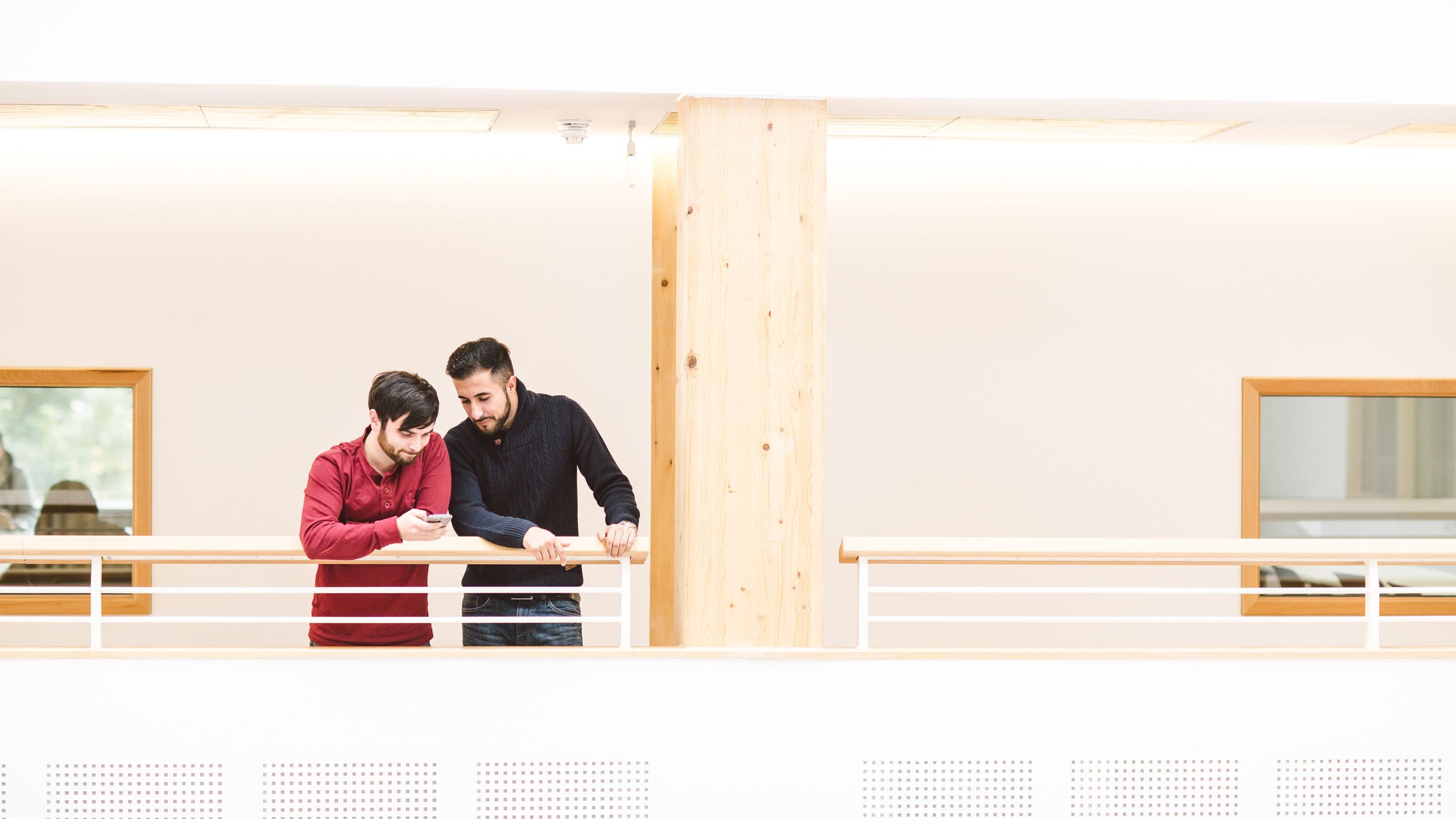
Find out more
Make your studies zero-carbon
If you want to save the planet, where better to start than one of the world’s most sustainable business schools? Shape your future and the future of business with a transformative education.
See how we’re changing the world
100% of our business and management research environment is world-leading or internationally excellent (REF 2021). Learn more about our researchers and the difference they make.
Sixty Stories
We’re celebrating 60 years of making change happen. 60 years of boldness and bravery from our students past and present. 60 years of creating change.

